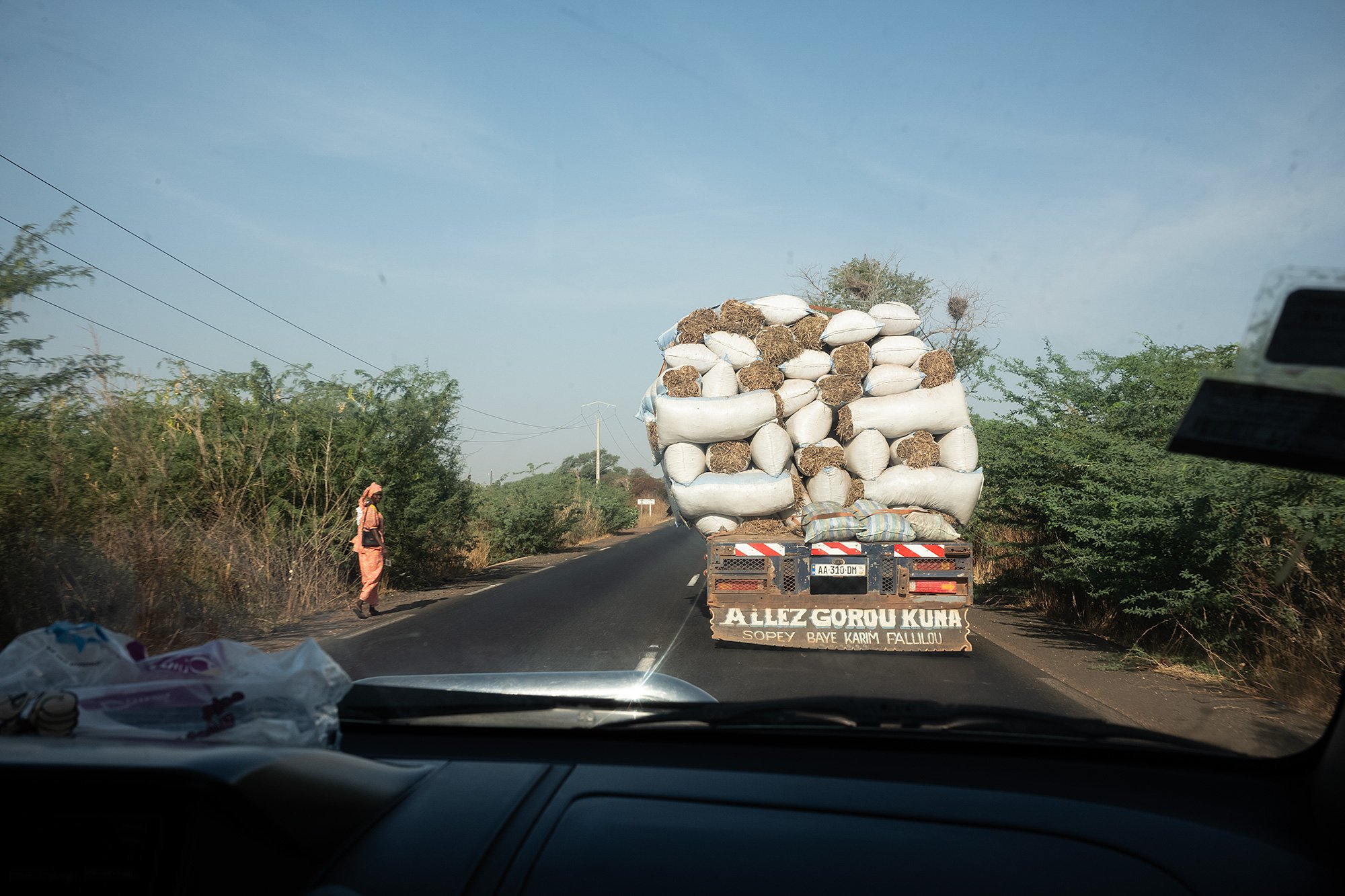
The Gambia chapter three:
A river cruise, stone circles, and remnants of the slave trade.
I wake up in the morning to the sounds of monkeys, hippos, and birds. The day is just about to start, the skies purple fighting against the night.
I walk down the path towards the river to watch the sunrise, opting to board one of the aluminum boats to get as close to the water as possible.

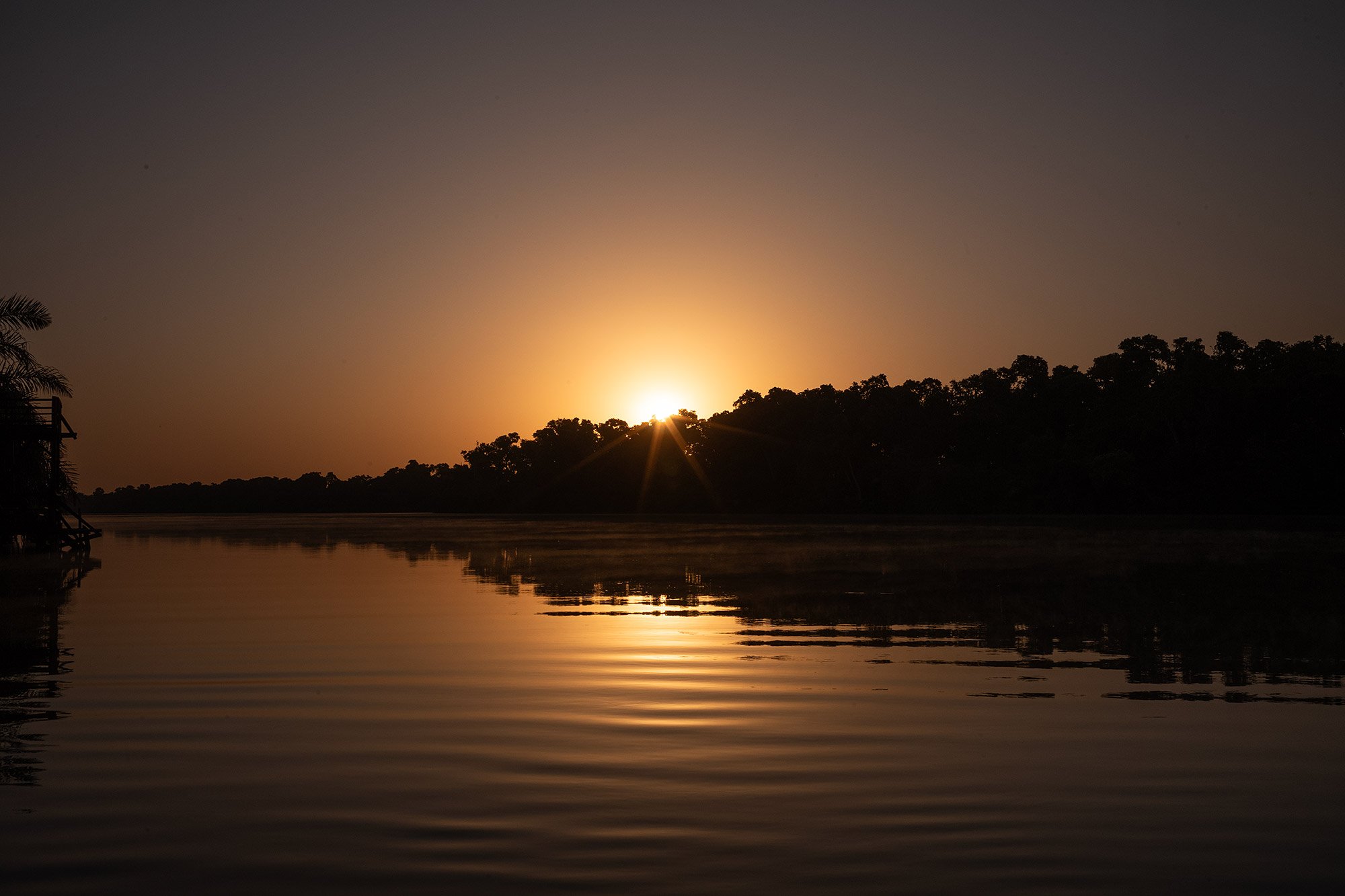
After the sun comes up I head to the main house. We’re to take a boat to the cliffs for a morning hike.
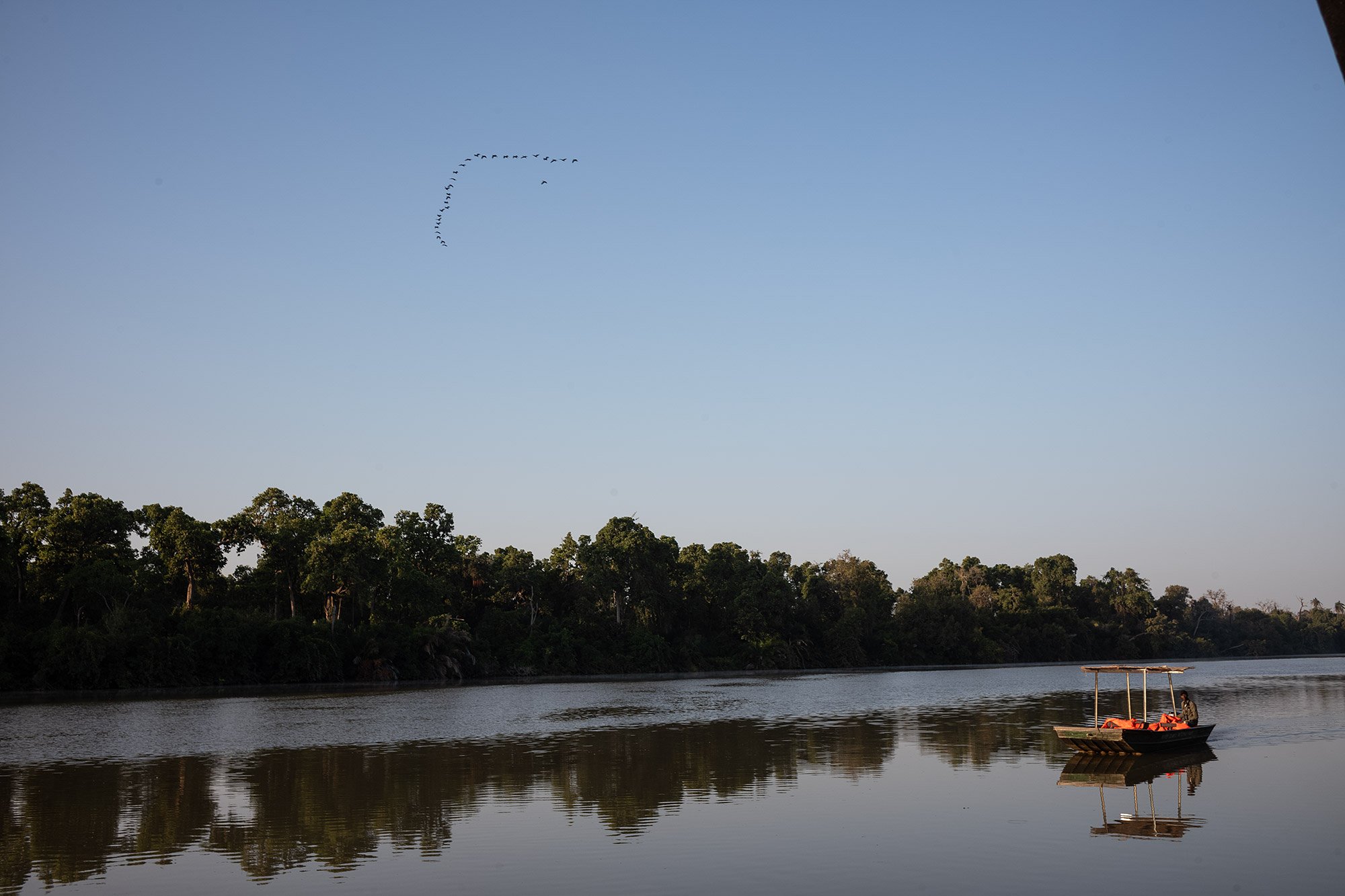
The river is calm, the skies clear. From our boat we see monkeys and baboons in the trees. The morning light paints everything with a golden brush and the jungle is as beautiful as I’ve ever seen.
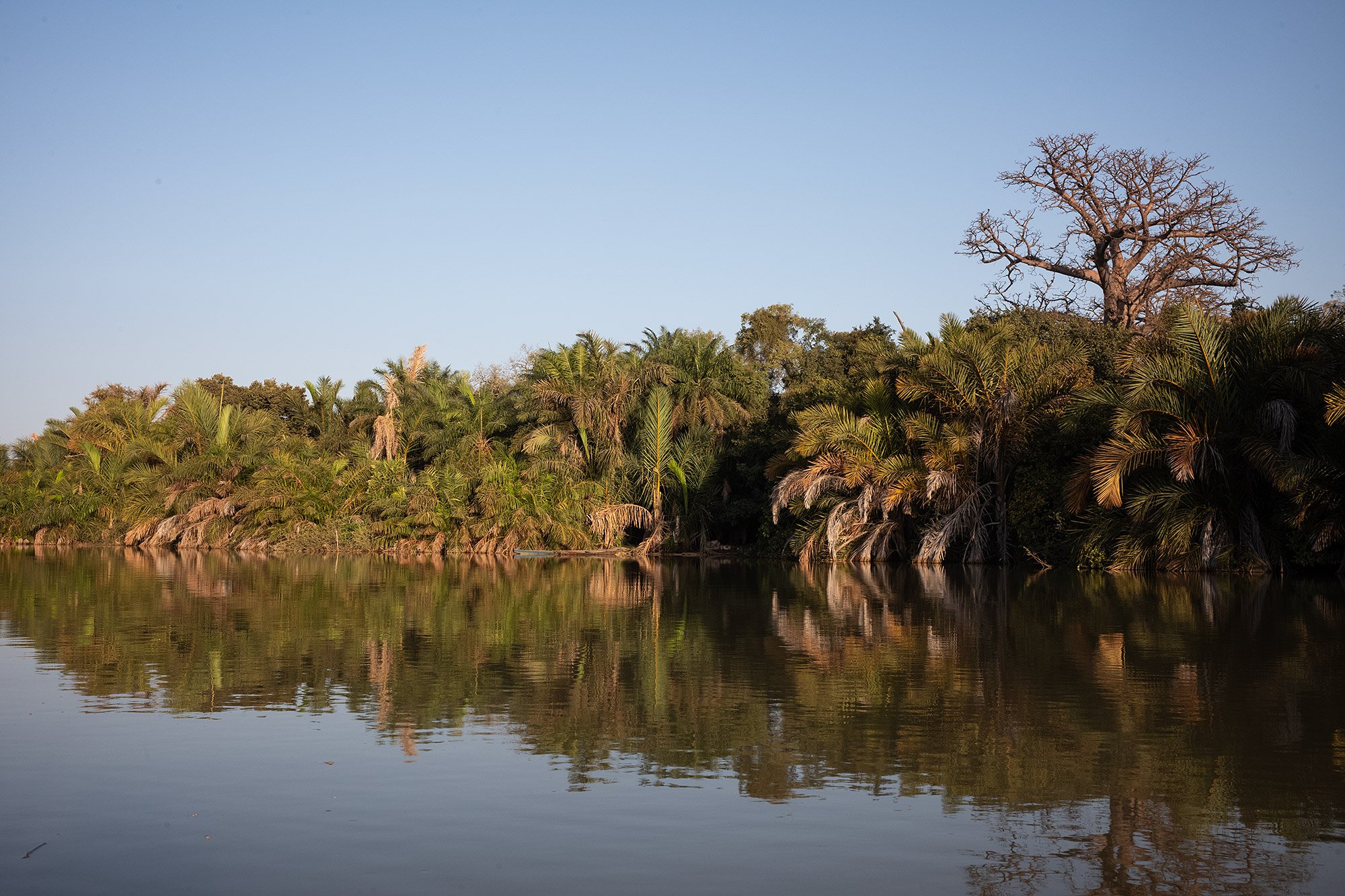

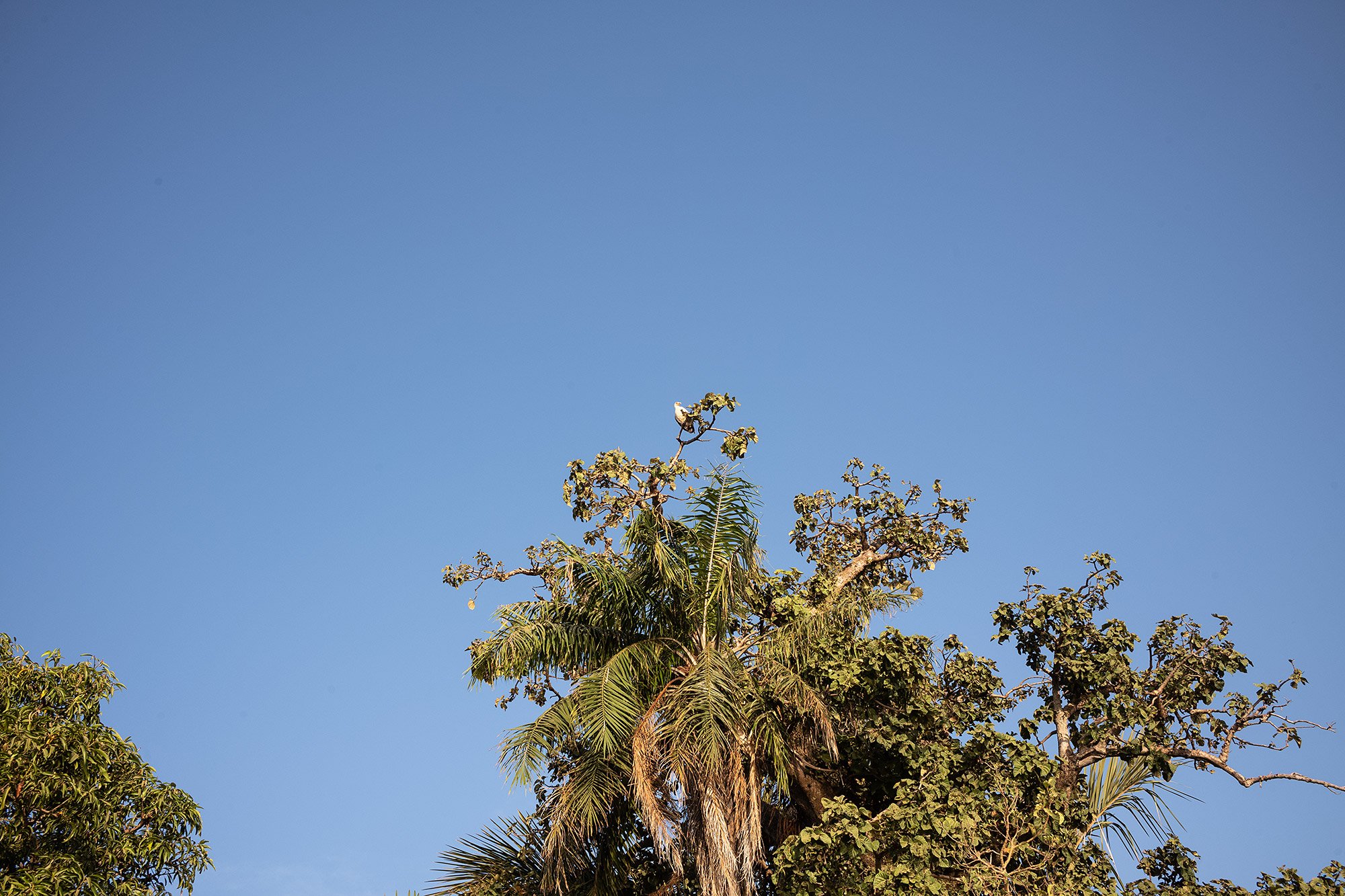

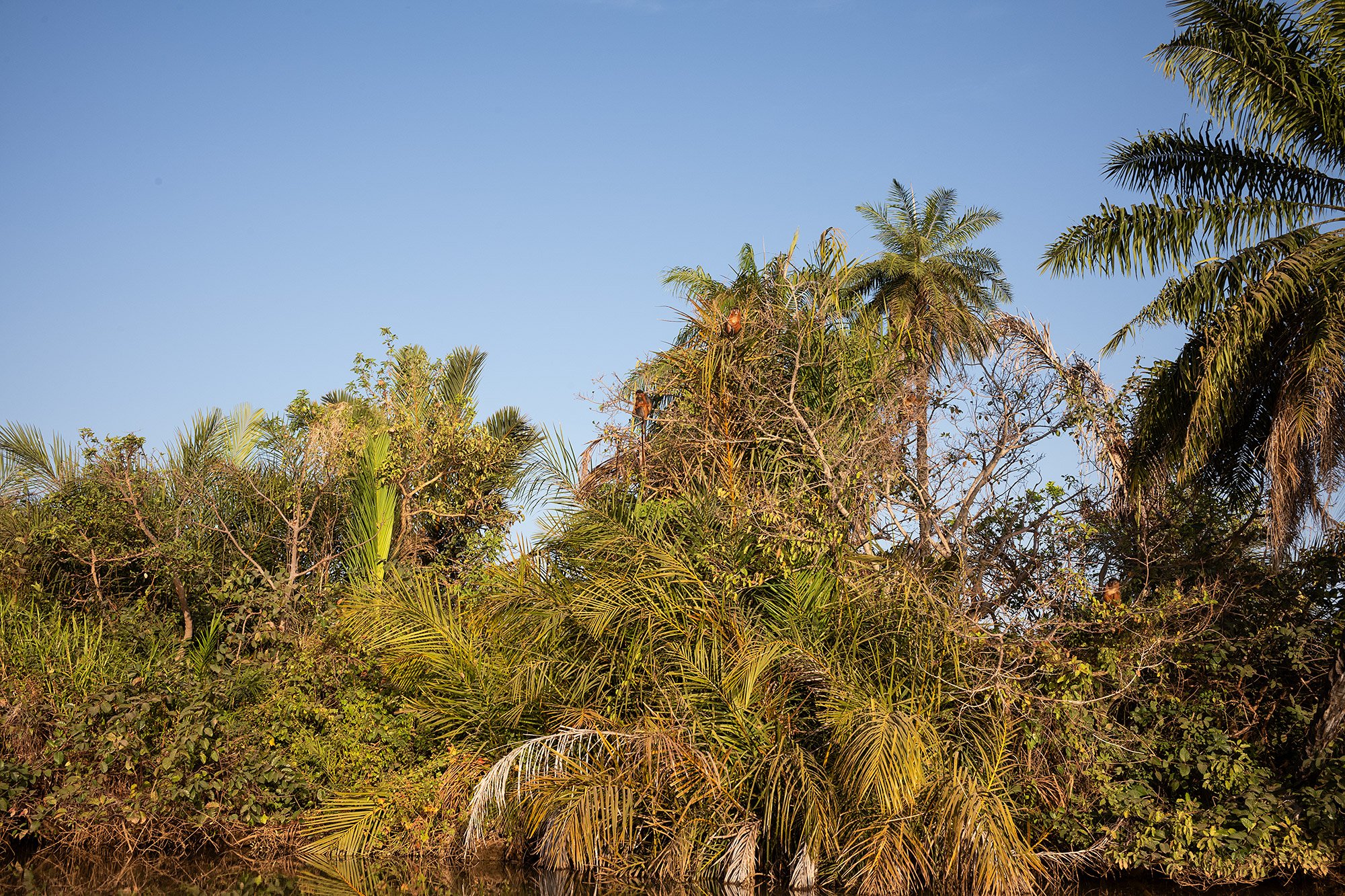
The cliffs are perfectly mirrored in the water. It feels like we’re the only boat on the surface, the only humans within kilometers of the site. Our guide noses the boat forward and buts the shore. He ties it down and we alight.
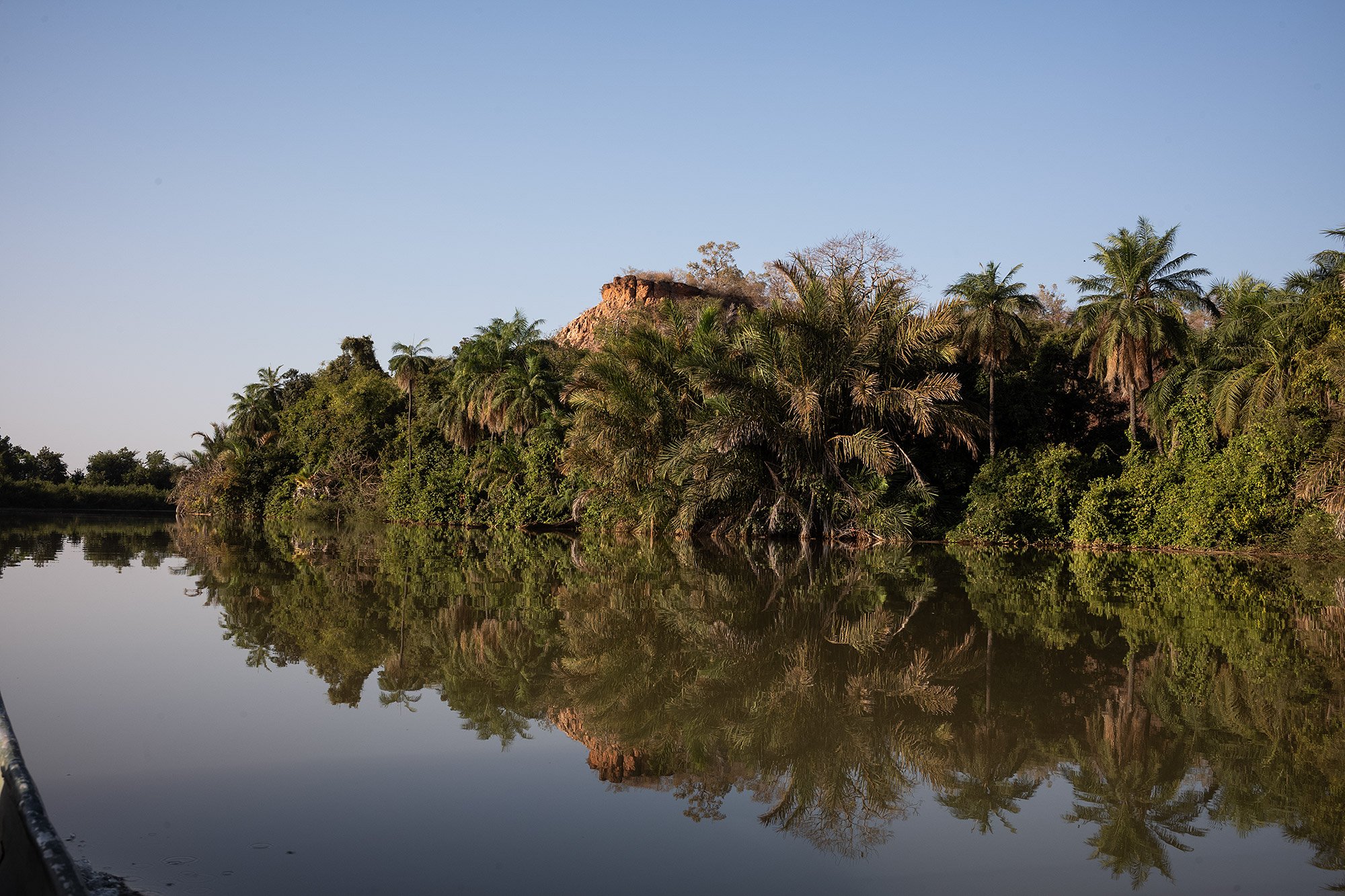
It’s a short hike up to the top, a circuitous path that leads us away from the river before we climb and then backtrack to the edge.
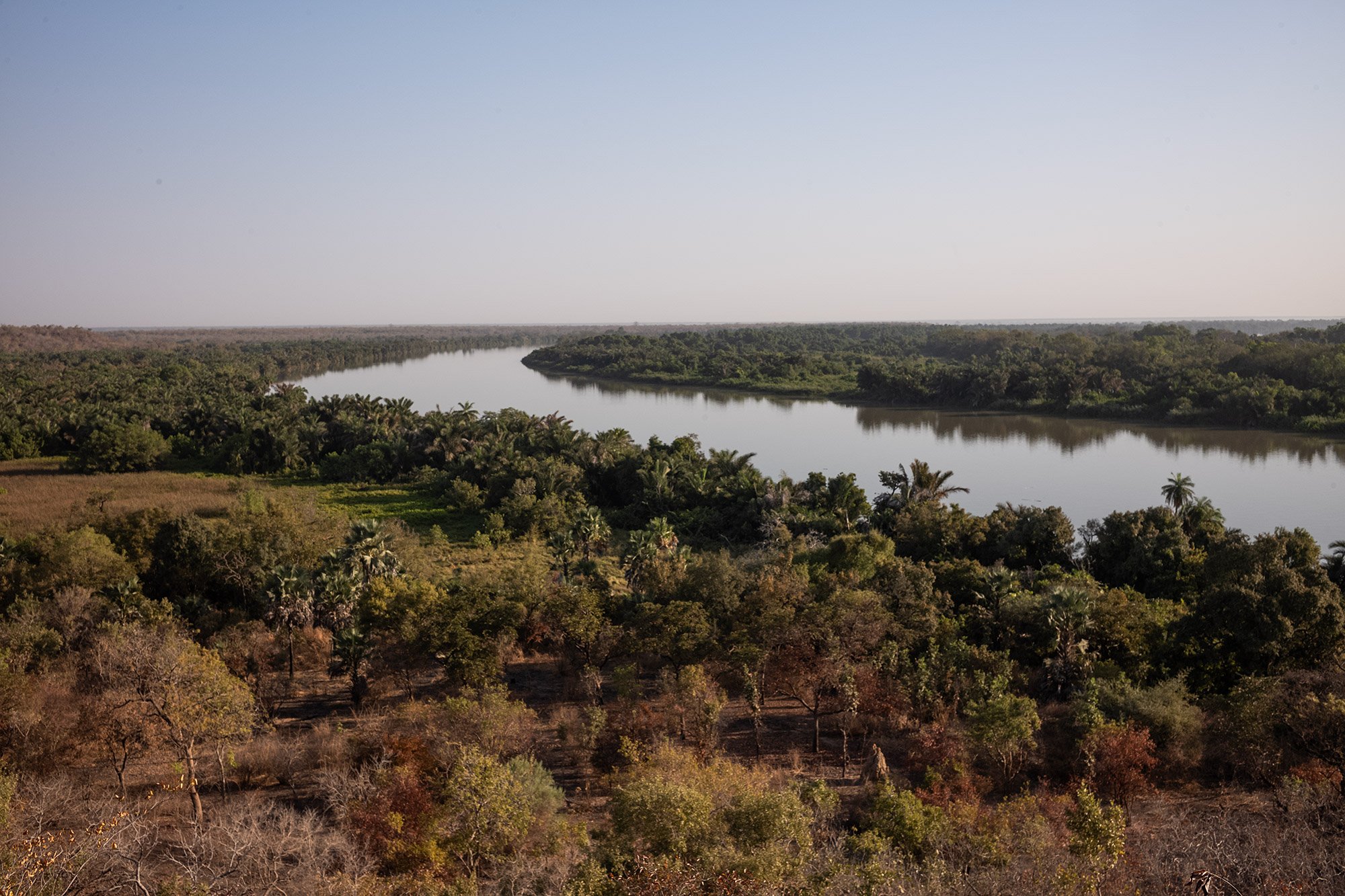
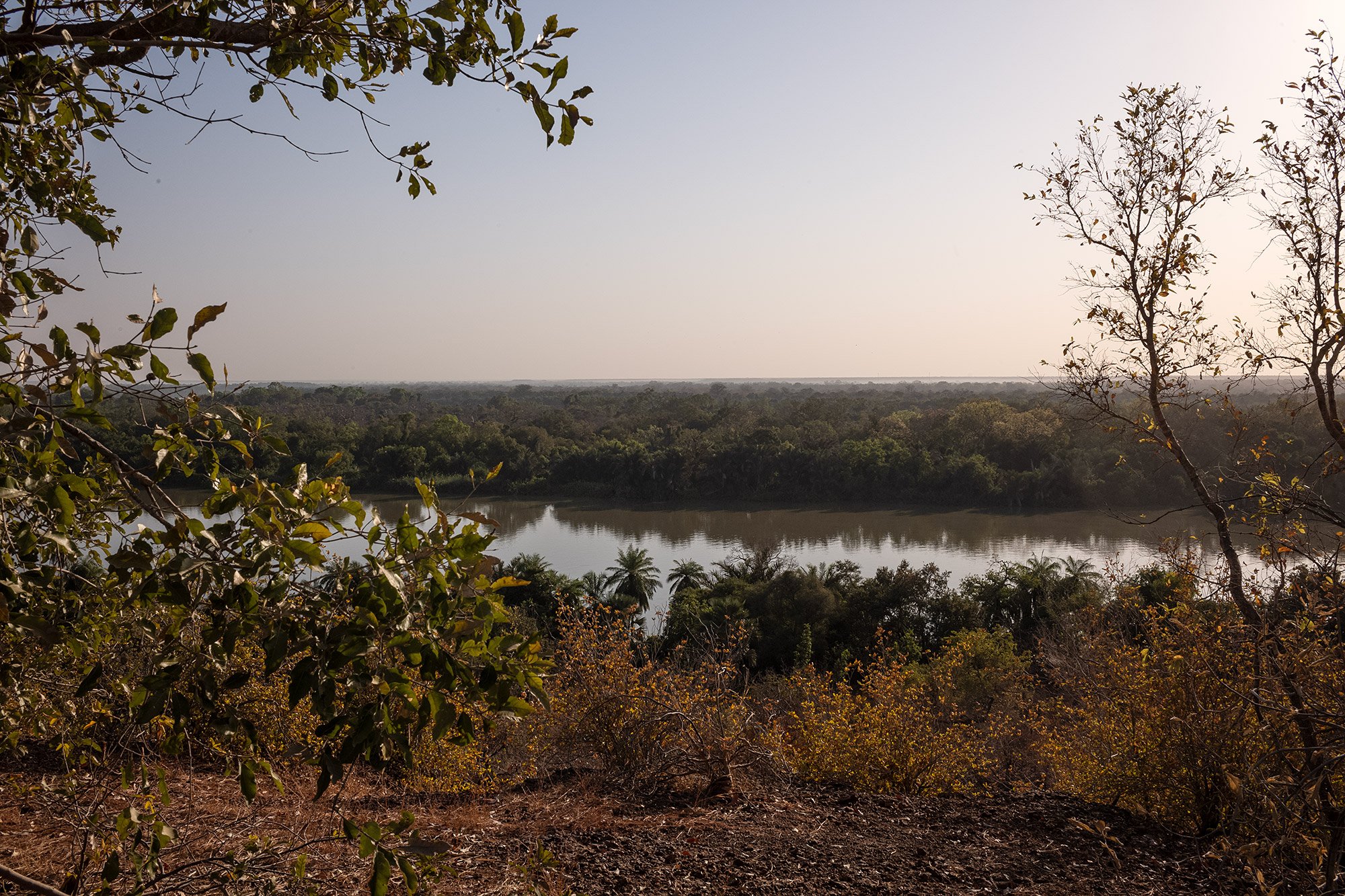

From the edge we have views along the winding river, as far as the horizon in either direction. Just below there’s a small island carved out from the mainland as the river has cut a path around it.
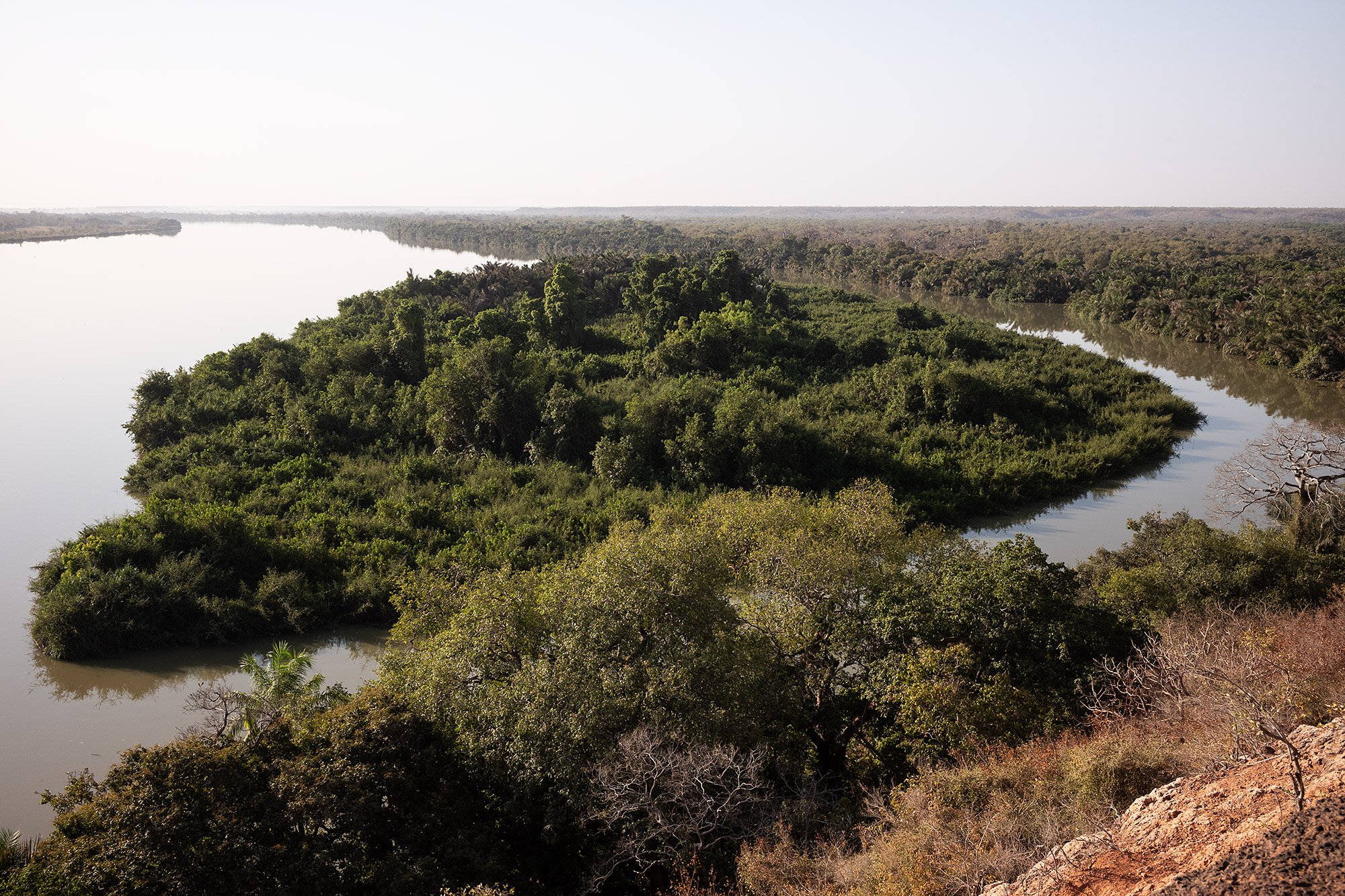
We pause to admire the view and then begin our walk back. The day warms, the skies remain clear.

At another stops us to look out at the plains away from the river. In the distance, baboons play on another ridge. We can just see them, more easily when they play amongst each other, their dark bodies shadows against the golden cliff.
We watch their antics for a while before our guide suggests we head back. We follow him down the same path as before. Reaching our boat I turn back to look at the cliff from our embarkation point, a mound of rock and dirt rising behind the trees.
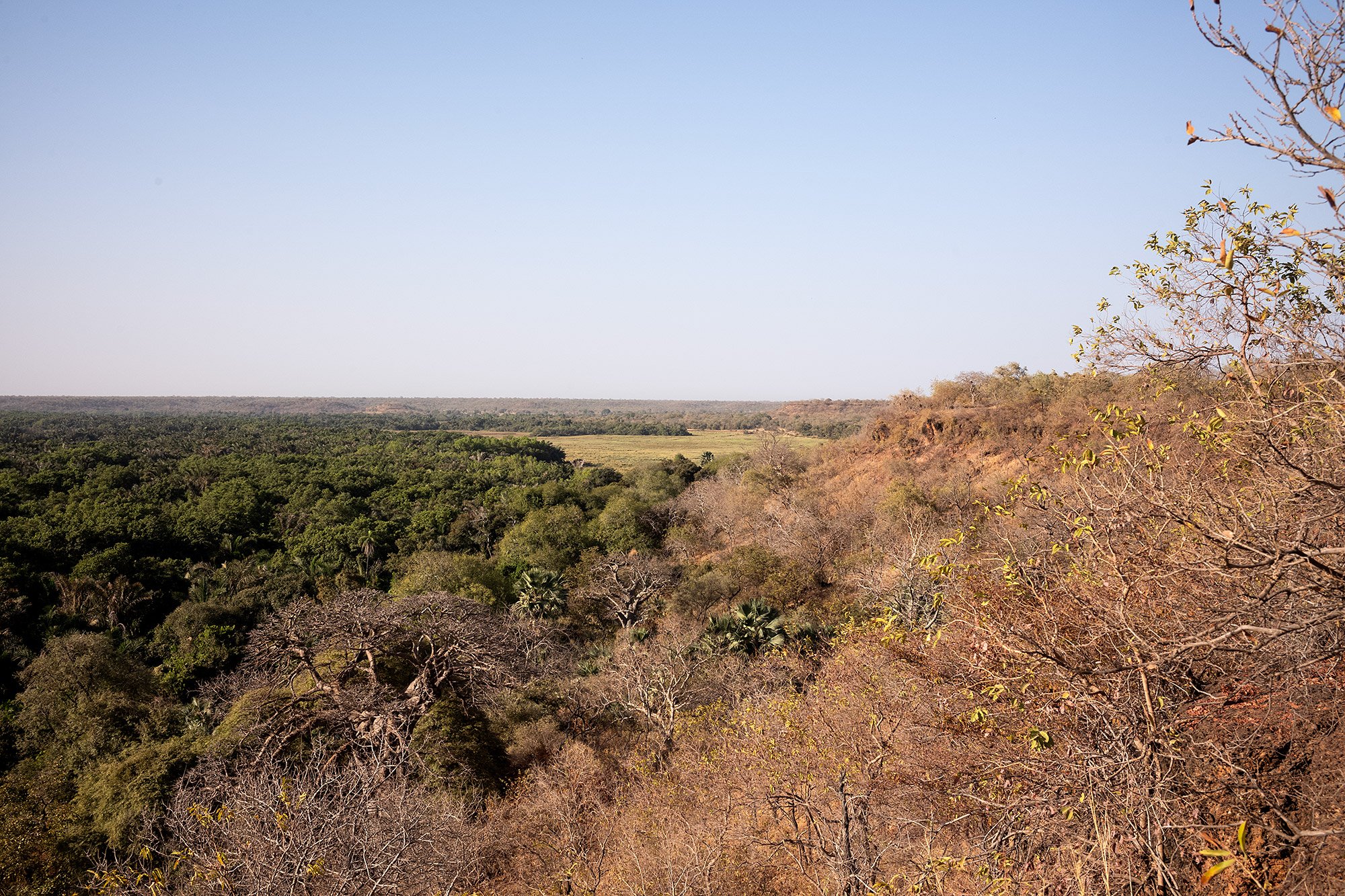

We alight and our guide takes us a little further into the jungle, navigating a small tributary he calls “Little Africa.” It’s a serene stretch of water lined with thick vegetation. We sit in silence to take in the scene, the only sound the soft murmur of the engine as it pushes us on.
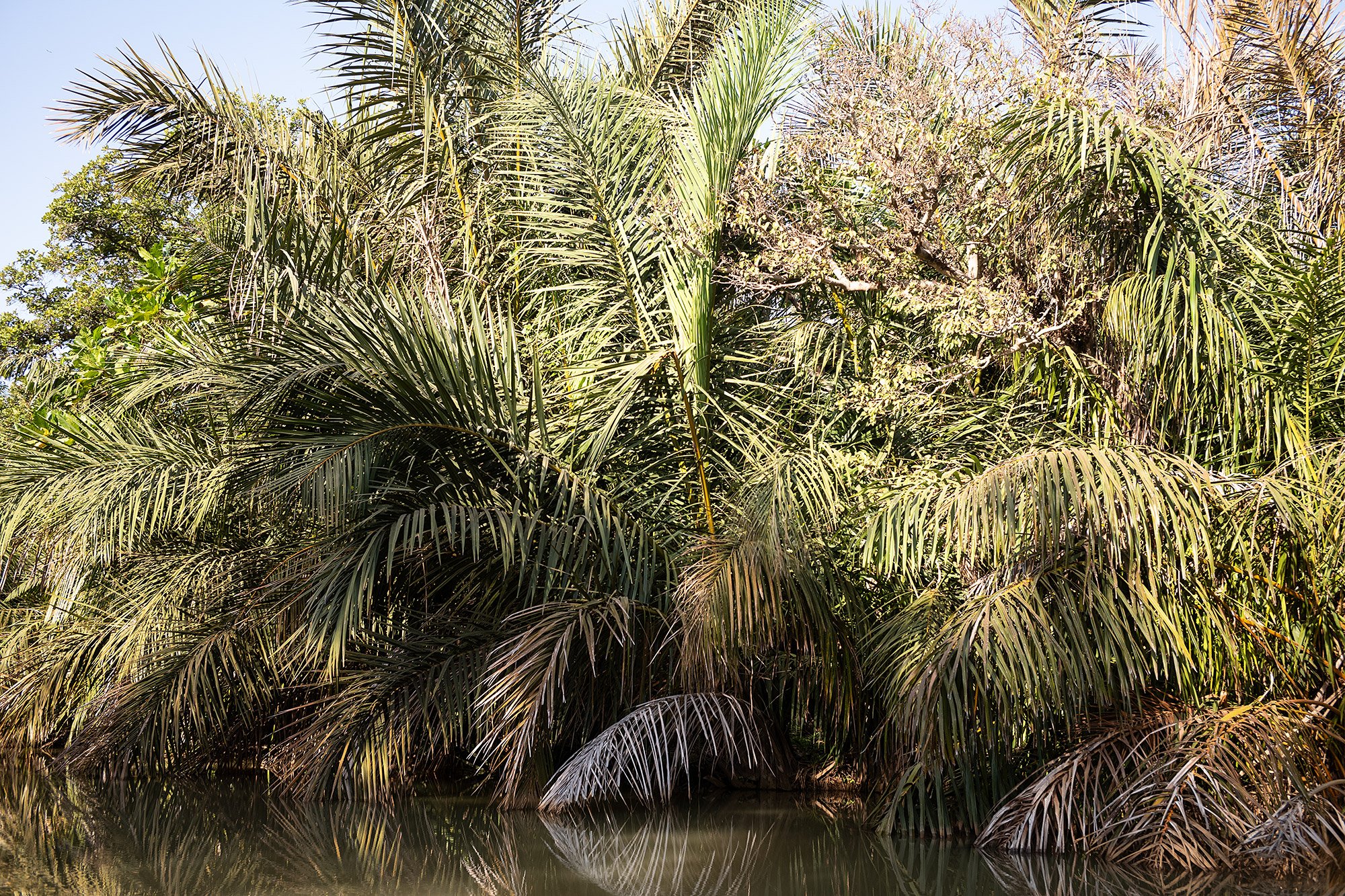
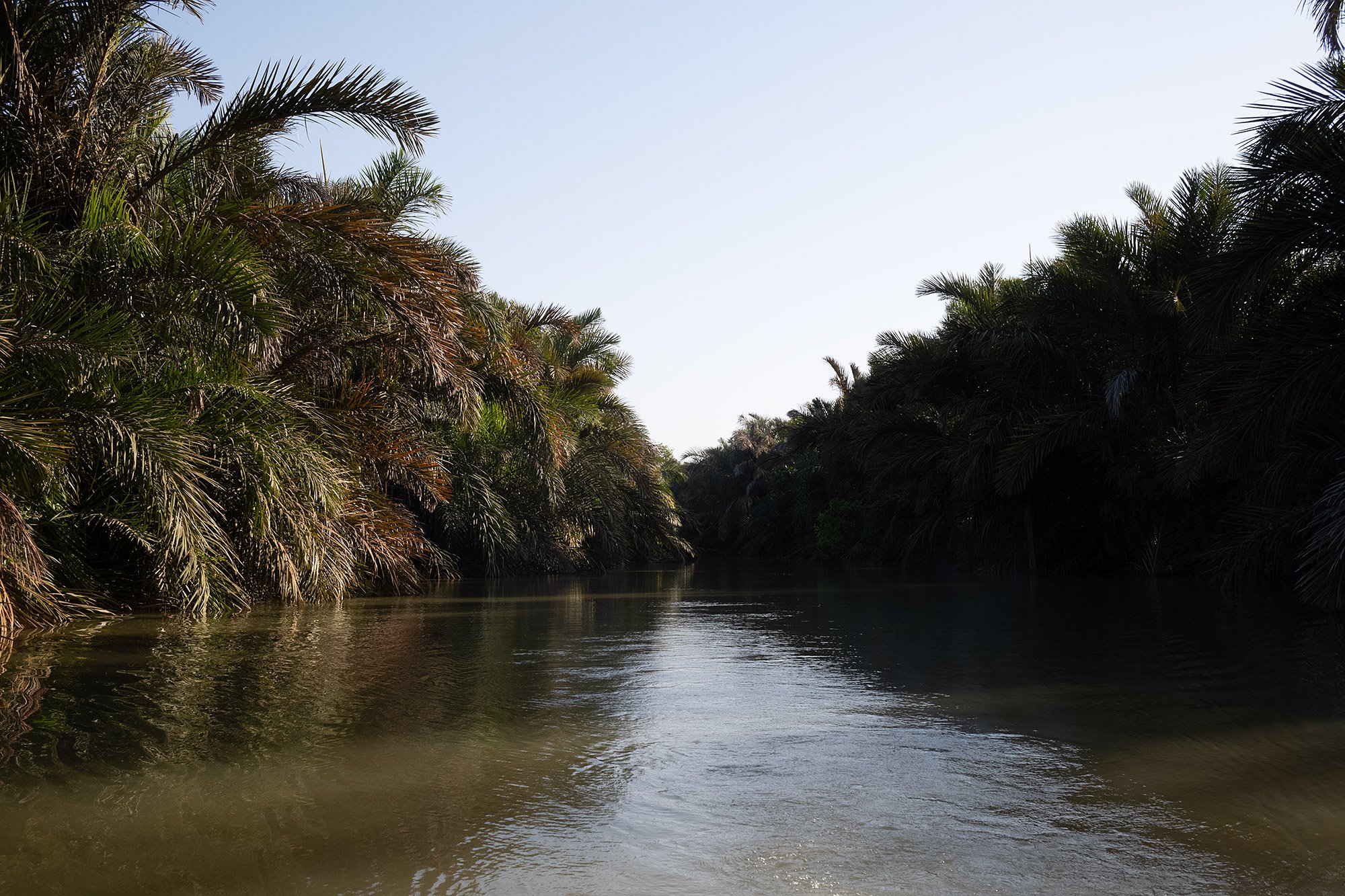
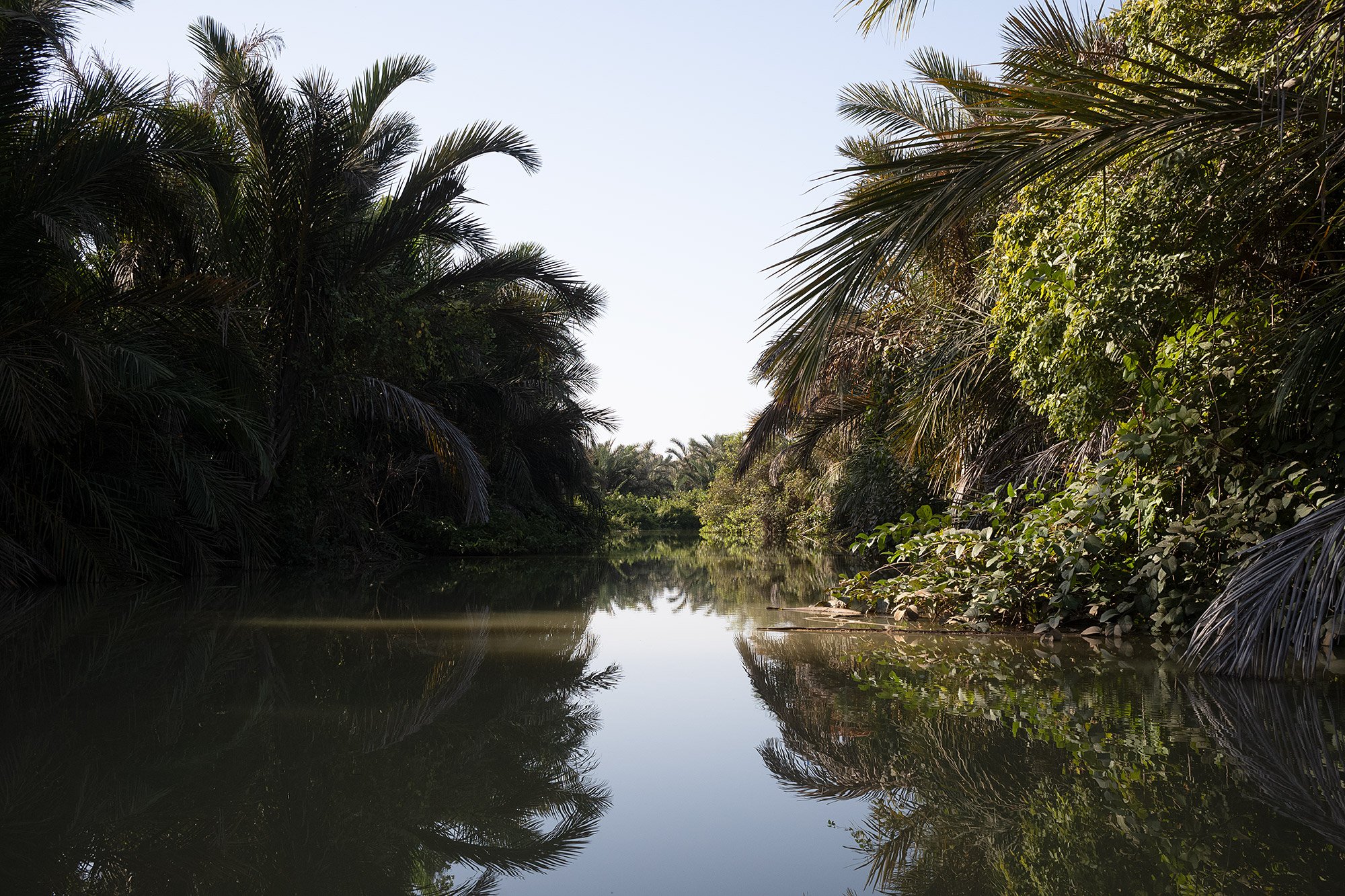
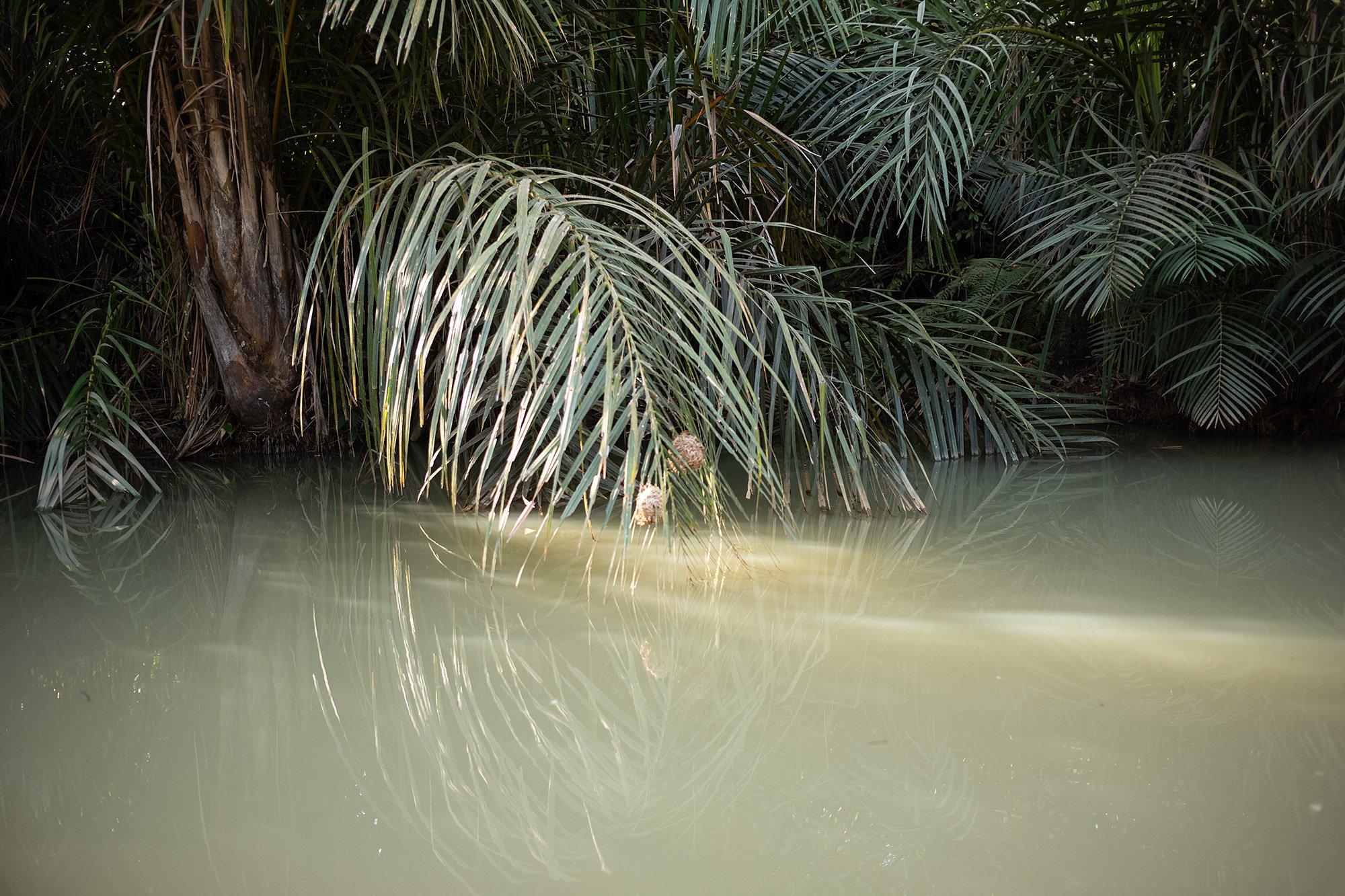

Back at the camp, I take a shower and gather my things. On the path back to the main house I spot a monkey coming towards me. As soon as he sees me he jumps to a tree, quickly climbing into the branches. From his perch he watches me cautiously as I pass.


The family is settling up when I arrive. We’re all paying in cash, thick stacks of bills that take time to count out. We say our goodbyes and they are off to climb the hill back to their tents and their car. They’re breaking up the trip home, driving part of the way and then finding a place to spend the night before the final stretch.
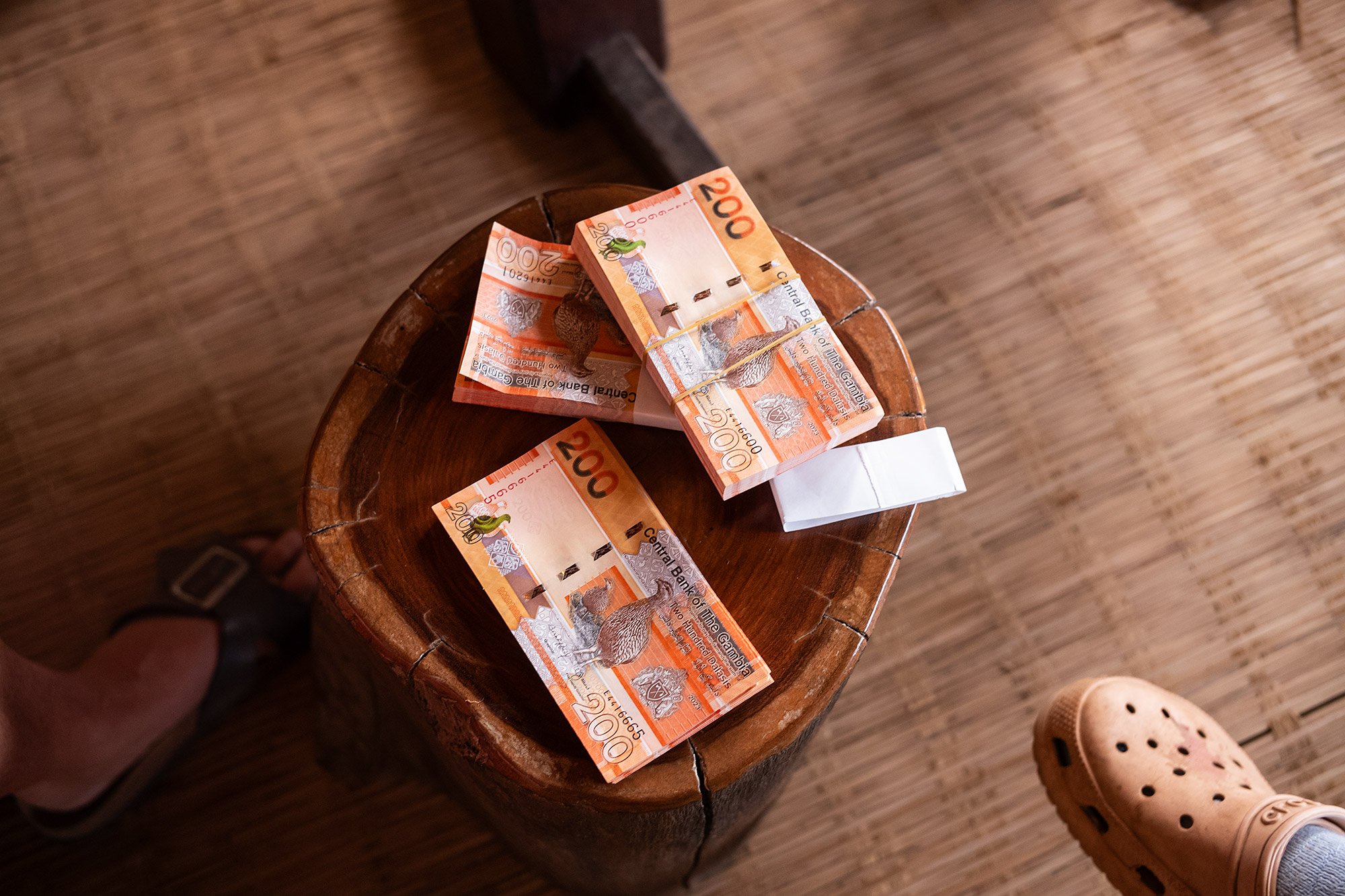
Janis gives me oranges and bids me take one with me. MJ has returned and I board his boat to head back upriver to meet the Ibrahimas to explore the rest of the day.

From the guesthouse we drive to the nearby Wassu stone circles, one site of many spread out in The Gambia and Senegal. It’s uncertain why these monuments were built, but scientists have determined they were built between the 3rd century BCE and the 16th century CE.
It’s a UNESCO Heritage site, though the entrance is unassuming. A faded sign stands next to the parking lot. A few small buildings contain a museum and an office. Ibrahima(2) introduces me to a guide who takes me around. Ibrahim(1) follows. He’s never been to the site in The Gambia.
Standing before one set of circles the guide asks me if I recognize it. He positions me so that I’m looking at it from a certain angle. It’s the circle depicted on the national currency.
Stones are piled on top of the pillars and the guide tells me people stack them because it’s said to grant wishes. I raise a stone and make a wish for the health and good good fortune for my family; I raise another for my friends.






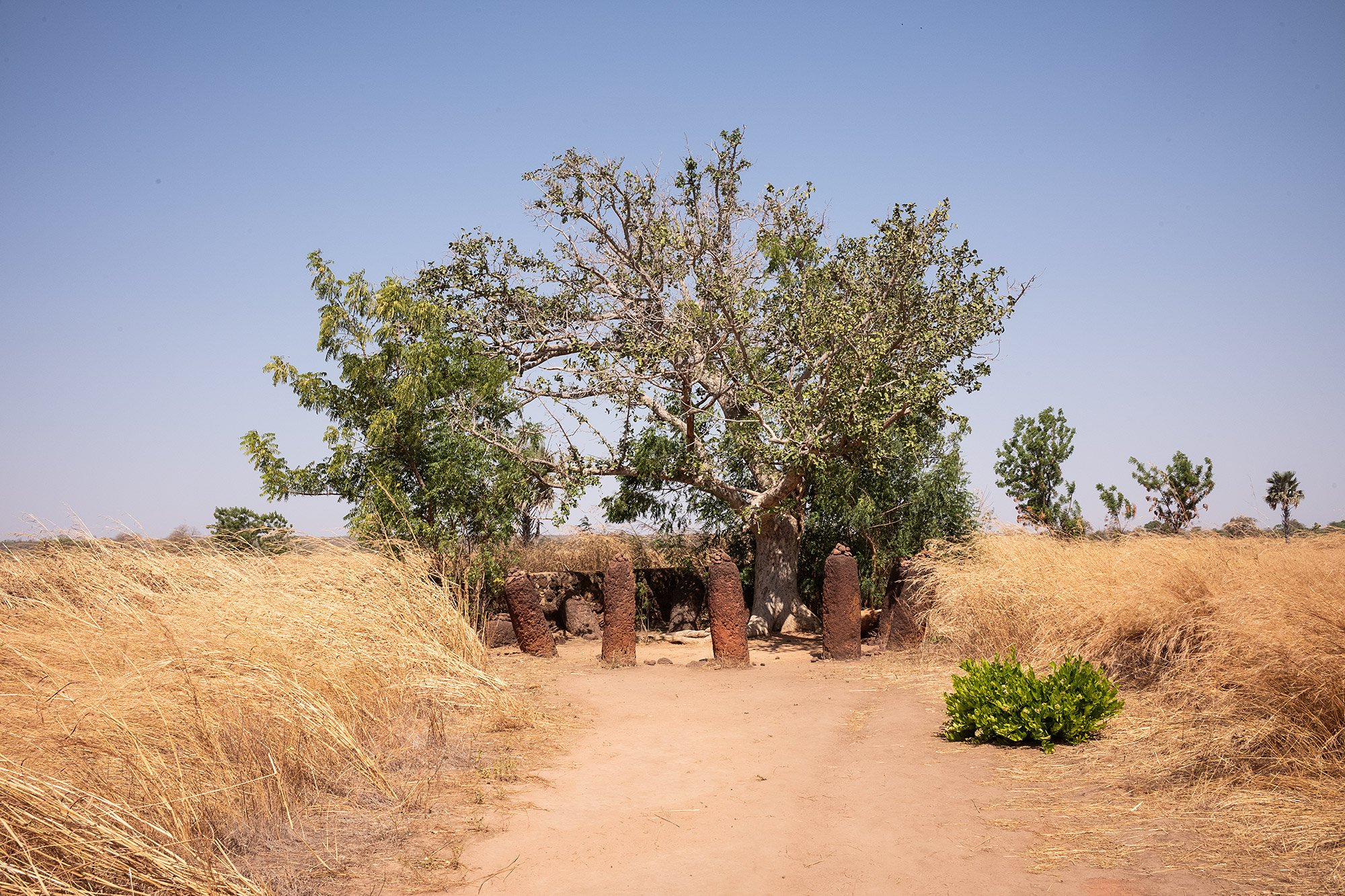


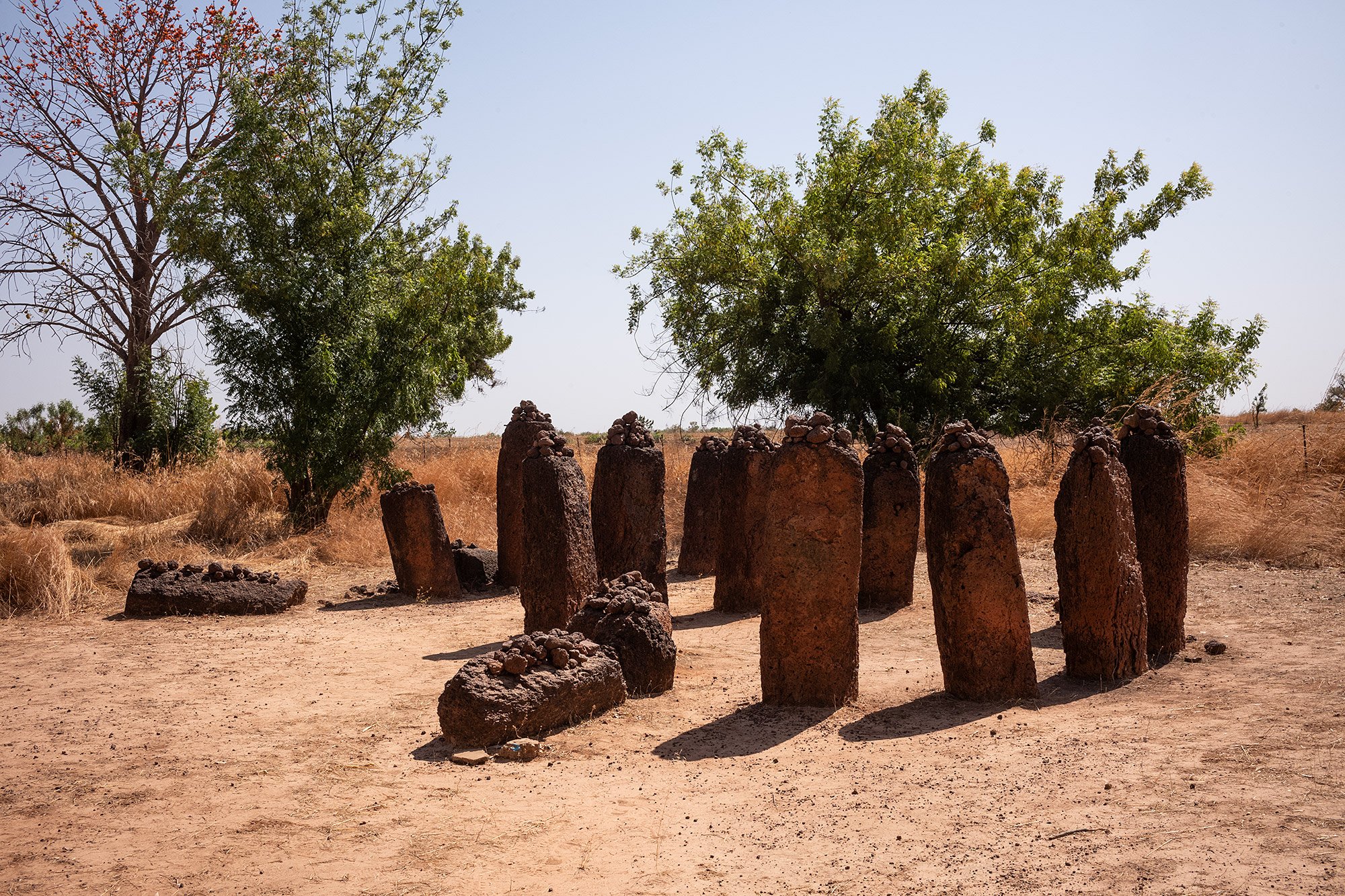


From the stones it’s a long drive to Albadarr, where we will stay for the night. It’s almost all the way back to Barra; it’s also the jumping off point to visit St. James Fort on Kunta Kinteh island, a key staging point during the slave trade.
I ask if we can stop somewhere along the way to watch the Africa Cup of Nations match between Senegal and The Gambia. Ibrahima(2) says we’ll see. Later, I’ll discover he doesn’t actually want to watch the match; it’s too stressful for him.
Villages are quiet as we pass and I wonder if it’s the match or Monday. Ibrahima(2) tells me that everyone has been given a half day in The Gambia because of the match. Everyone is watching. Ibrahima(1) tries to get the match on the radio. At a checkpoint we learn that Senegal is up 1 in the first half. Ibrahima(1) jokes with the police staff, they take it well.
Near the hotel a police checkpoint tells us that Senegal is up 2. They’ve scored again in the second half. The match seems all but over.
Ibrahima(2) takes me to the Slavery Museum; we won’t be watching the end of the match.
In the museum, a guide shows me a wall of photos of important people in the struggle against slavery and oppression. One is a photo of Martin Luther King, Jr. and I tell him that today, in the States, it’s Martin Luther King, Jr. day; it’s what’s actually allowed me to come visit the museum today.

After the museum Ibrahima(1) drives us to a restaurant by the river. We’ll be taking a boat from here to visit St. James Fort. Ibrahima(2) asks if I want to have lunch before or after our tour. I tell him we can do after. He tells me we should order the food now as it takes some time to prepare; it’ll be ready on our return. I choose the ladyfish and chips, at first confused why it’s a dish for ladies before I realize I misread the word.


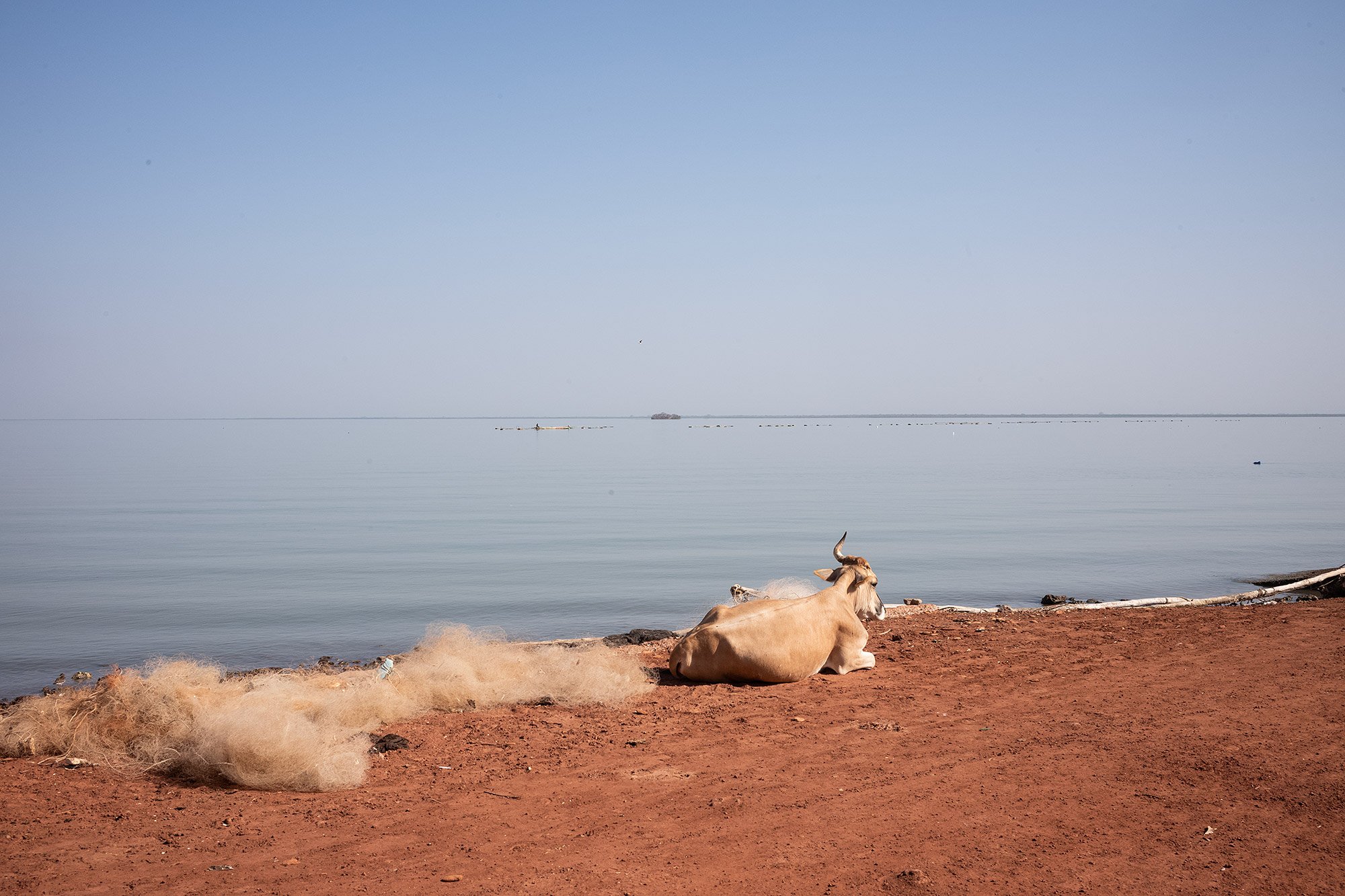
On the boat to the island Senegal scores again. The island guide shows us the score on his phone. I apologize that we haven’t been able to see the match. Ibrahima(2) says it’s better.
We make our way delicately past fishing nets on our way towards the open water. The sun is strong overhead and I’m thankful for the breeze the boat conjures up as the captain opens up the throttle.
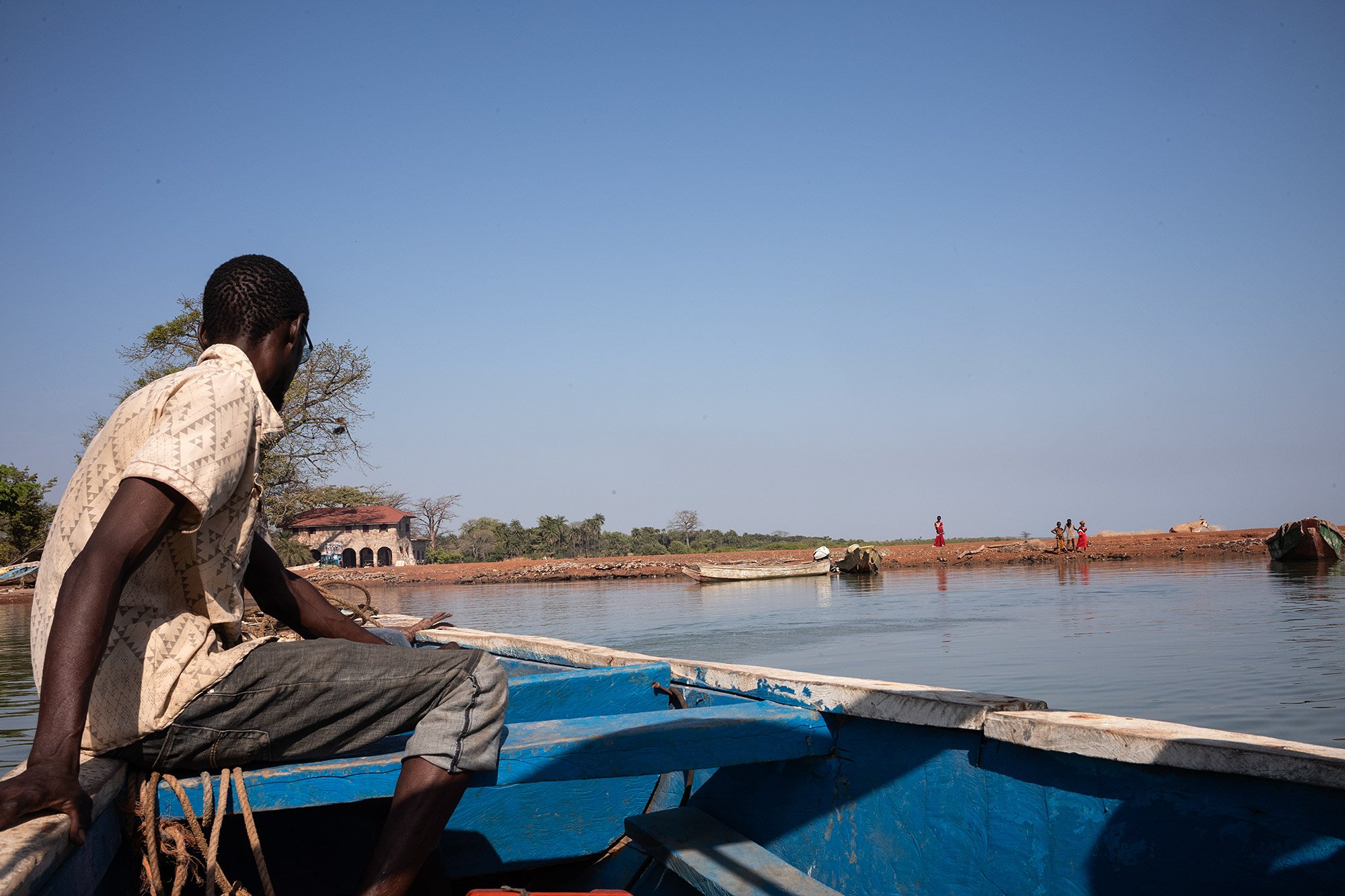
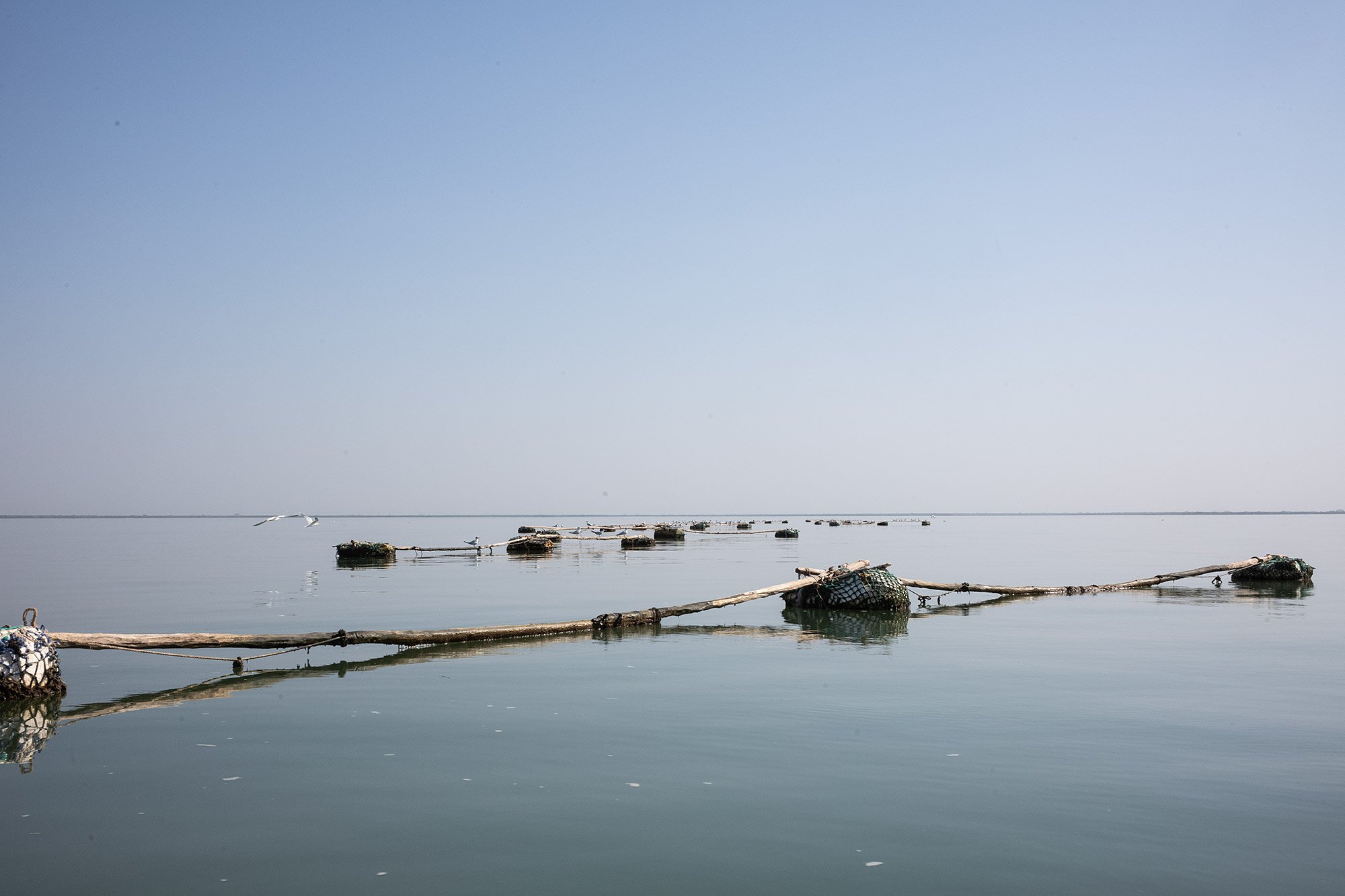
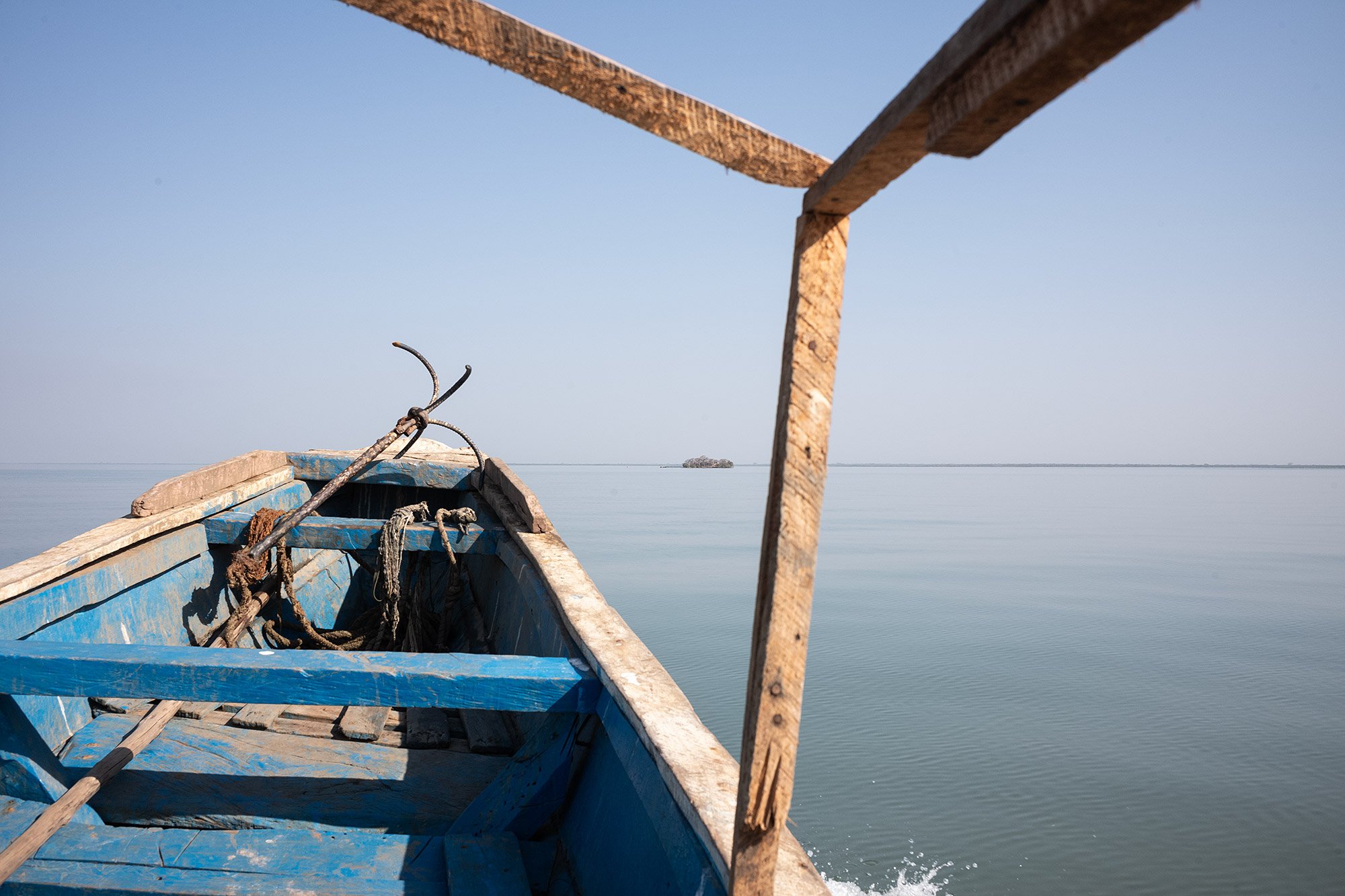
Kunta Kinteh Island, now named after the character in Alex Haley’s Roots, was once a holding ground for captured slaves before they were shipped to America. The ruins outline the homes and jail cells and embankments that made up the fort. It’s now a protected UNESCO heritage site, in danger of eroding away. The island is already only 1/6th of what it once was and the guide tells me that there are plans to shore up the island.
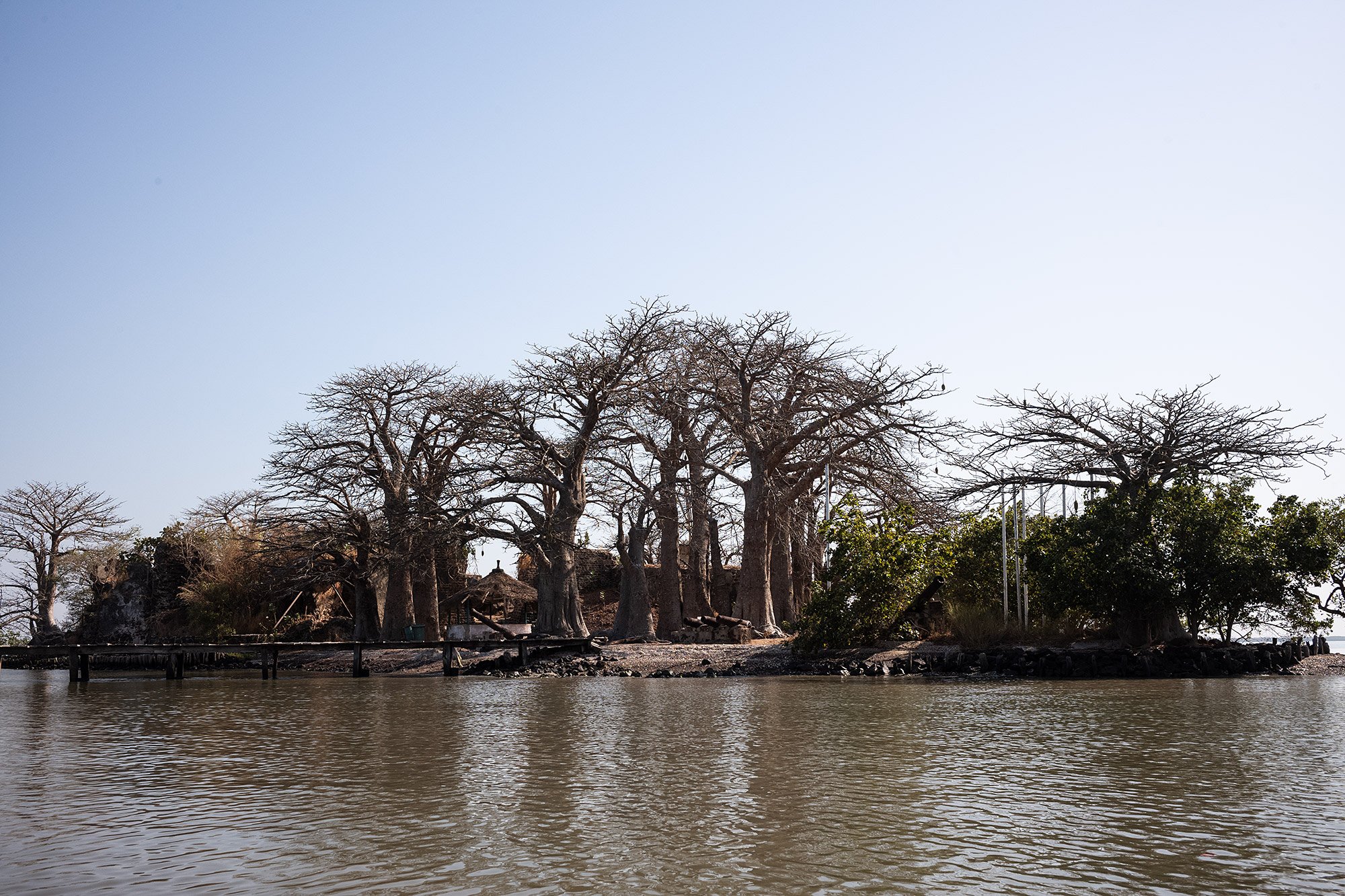

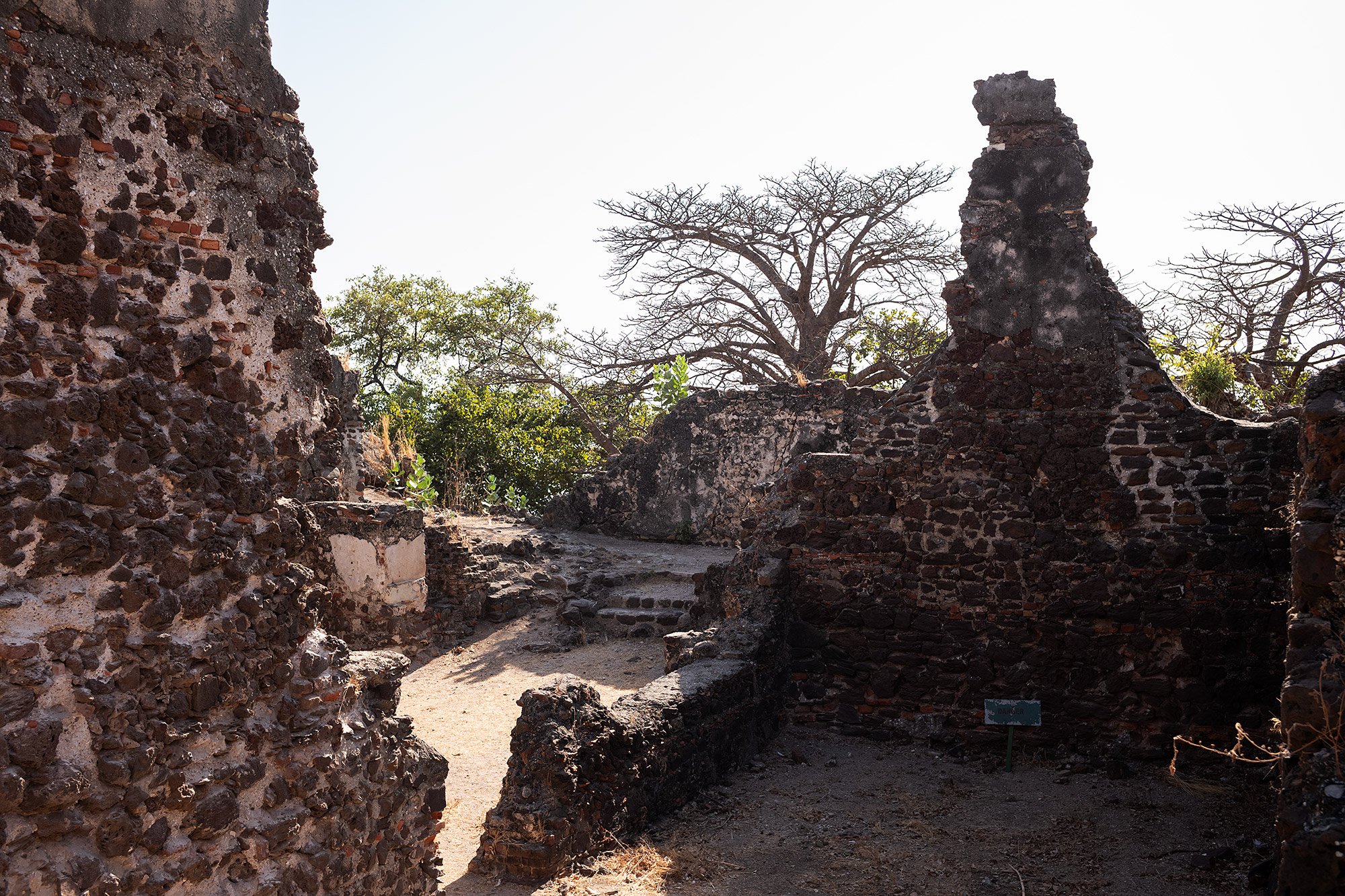
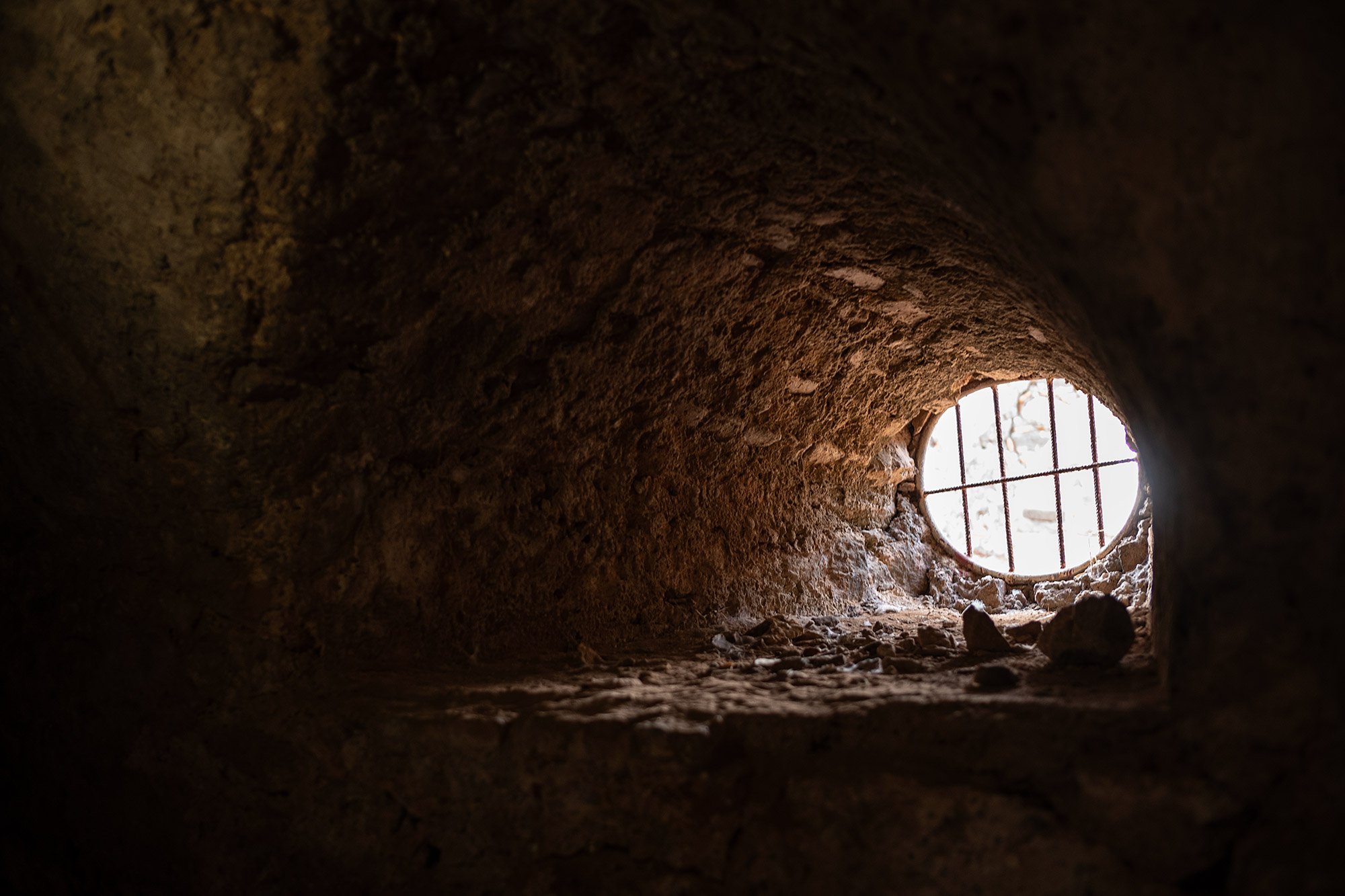
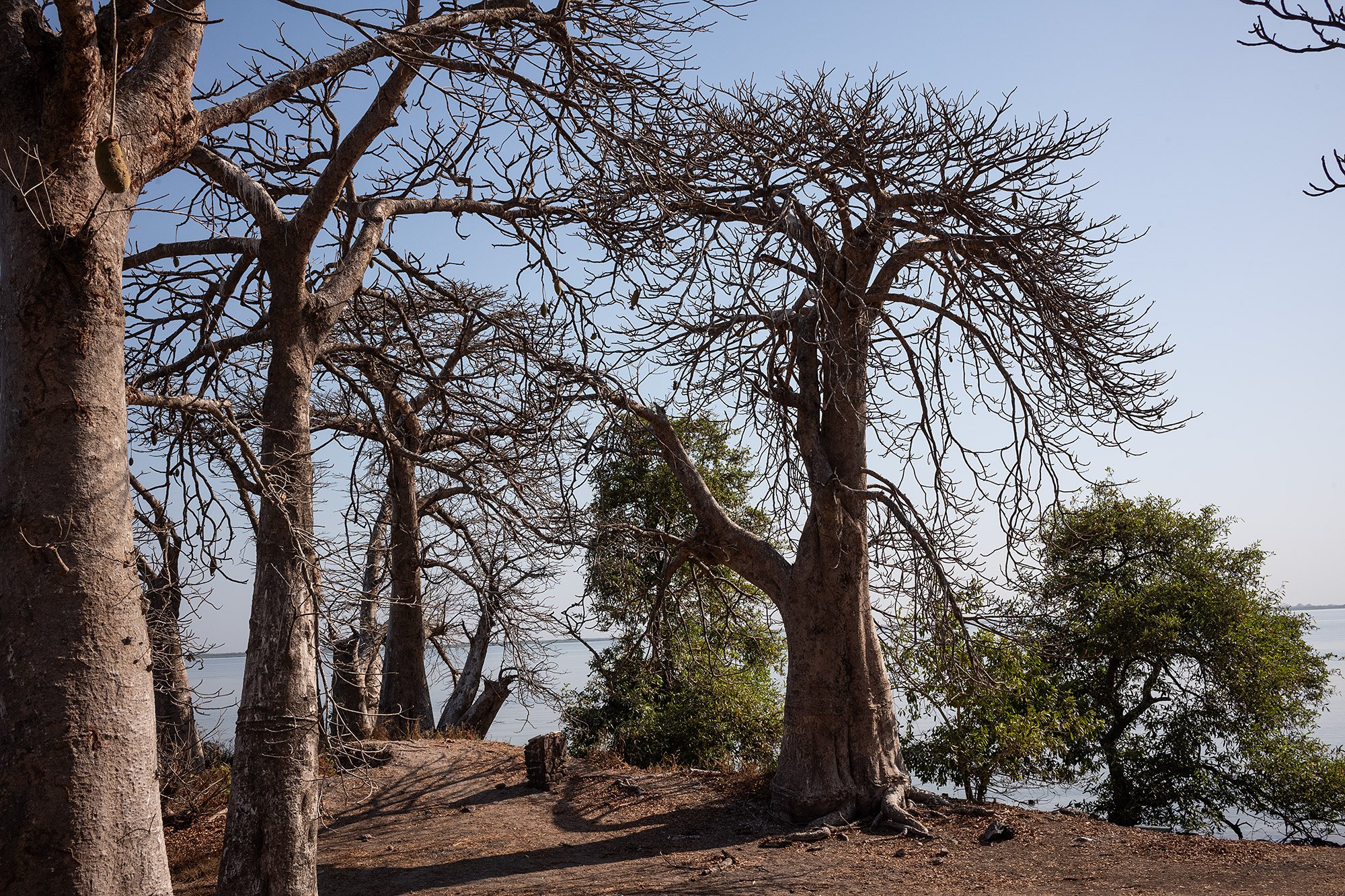
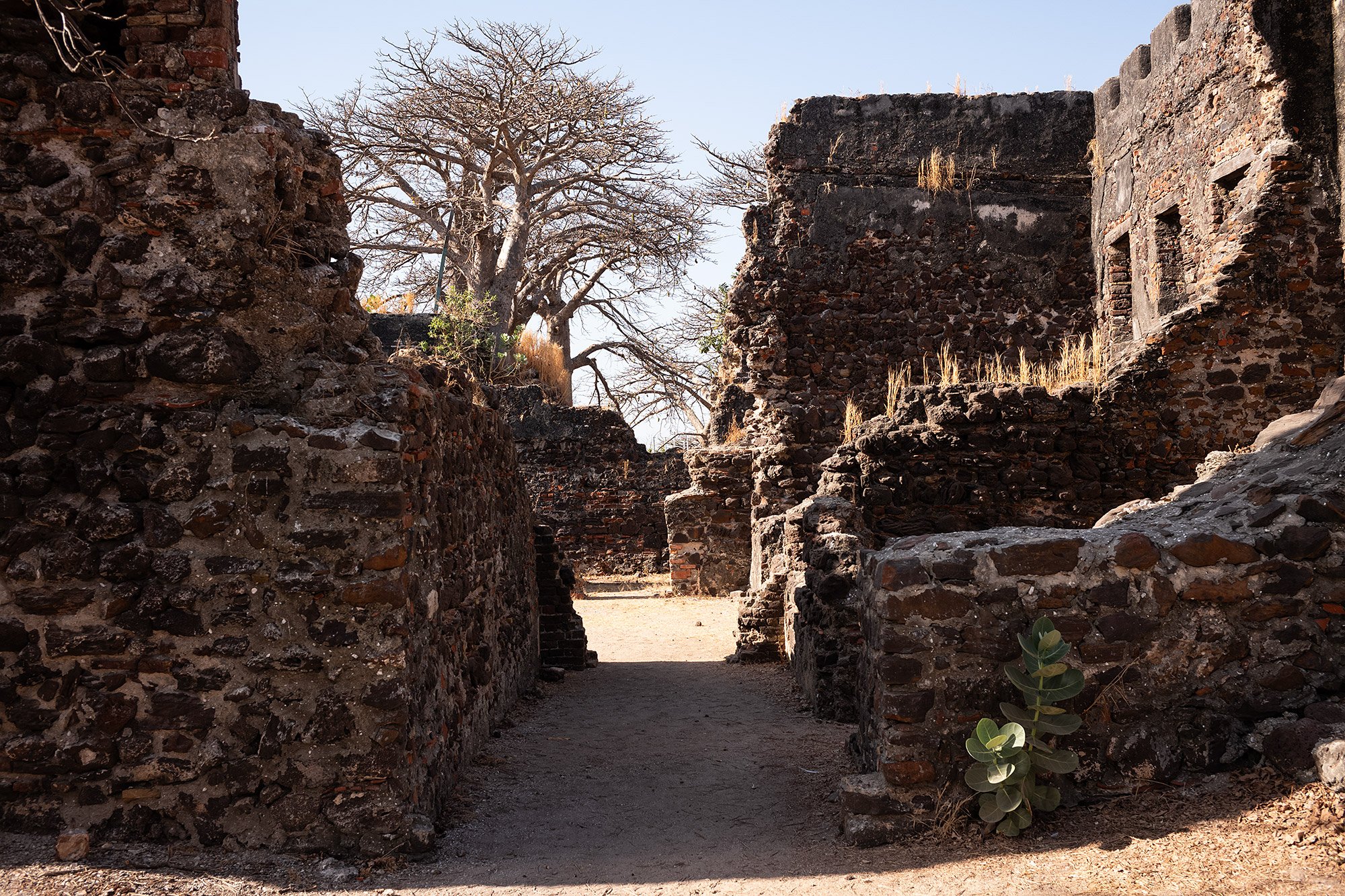



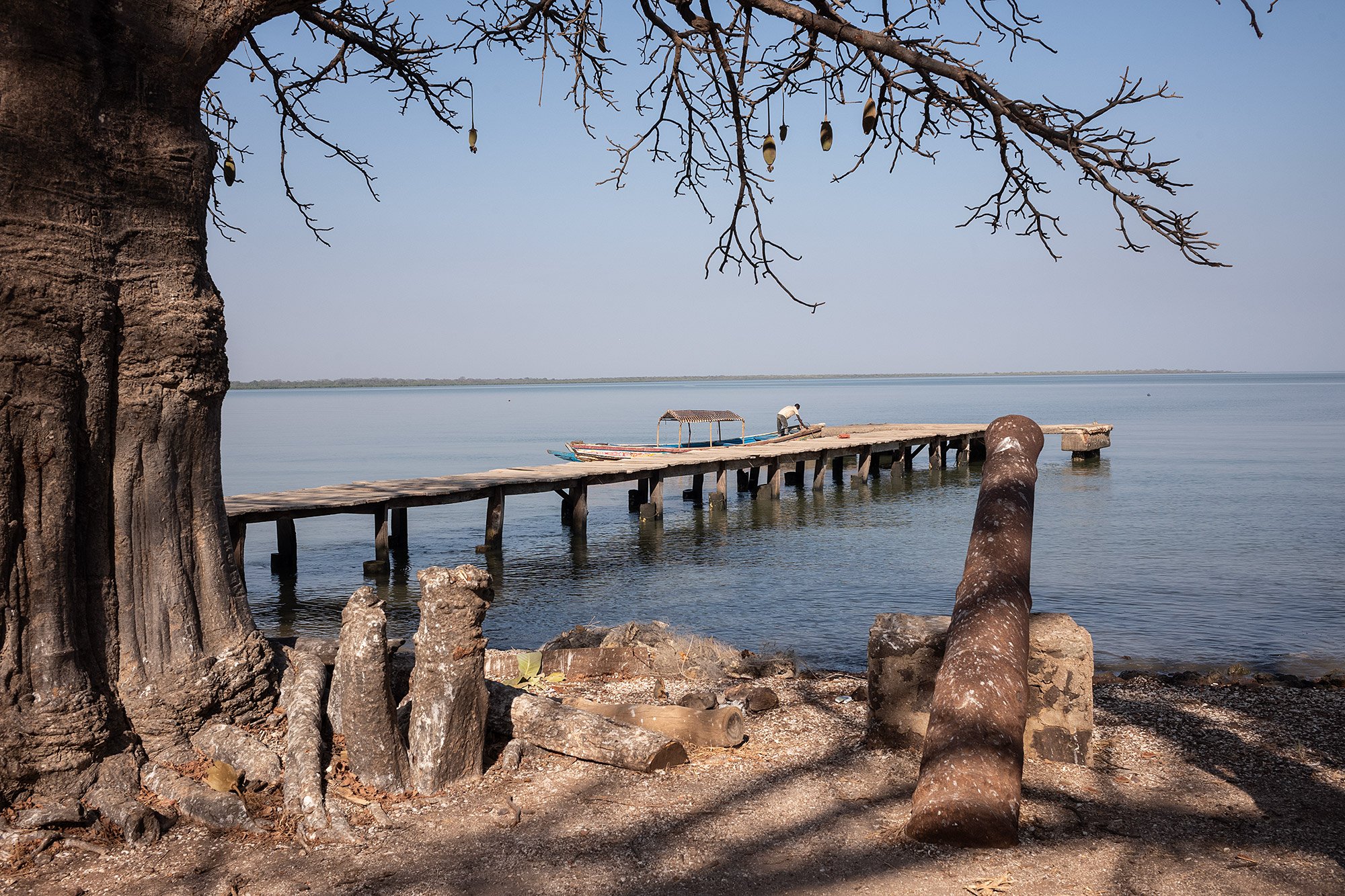
The captain’s young daughter has come with us on the voyage. She sits quietly on board and she had followed us around while we explored the island. Ibrahima(2) jokingly asks her if she wants to come with me to America. I tell him my next stop is actually Peru. They ask her if she’d want to come with me to Peru. She nods.

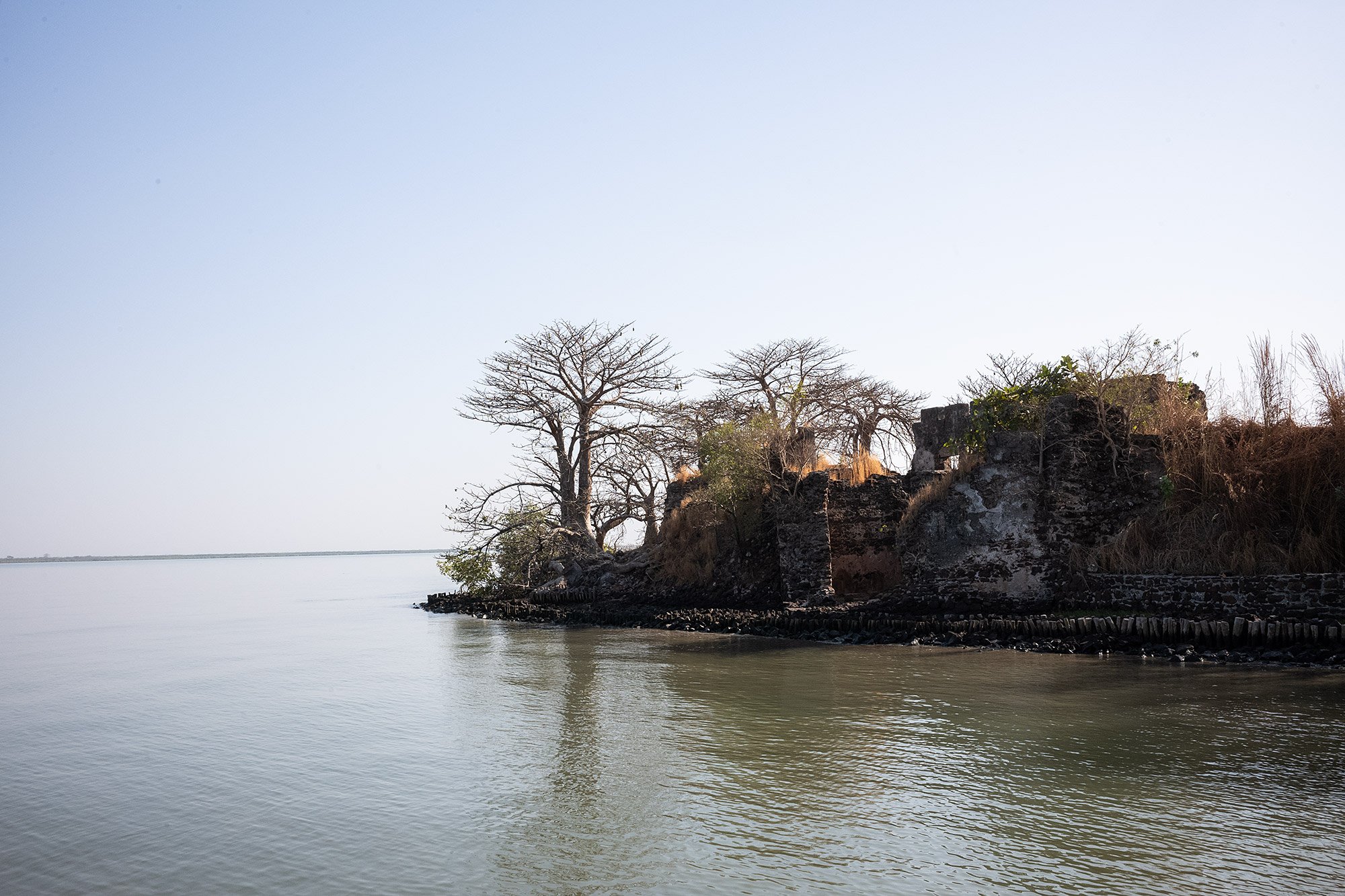
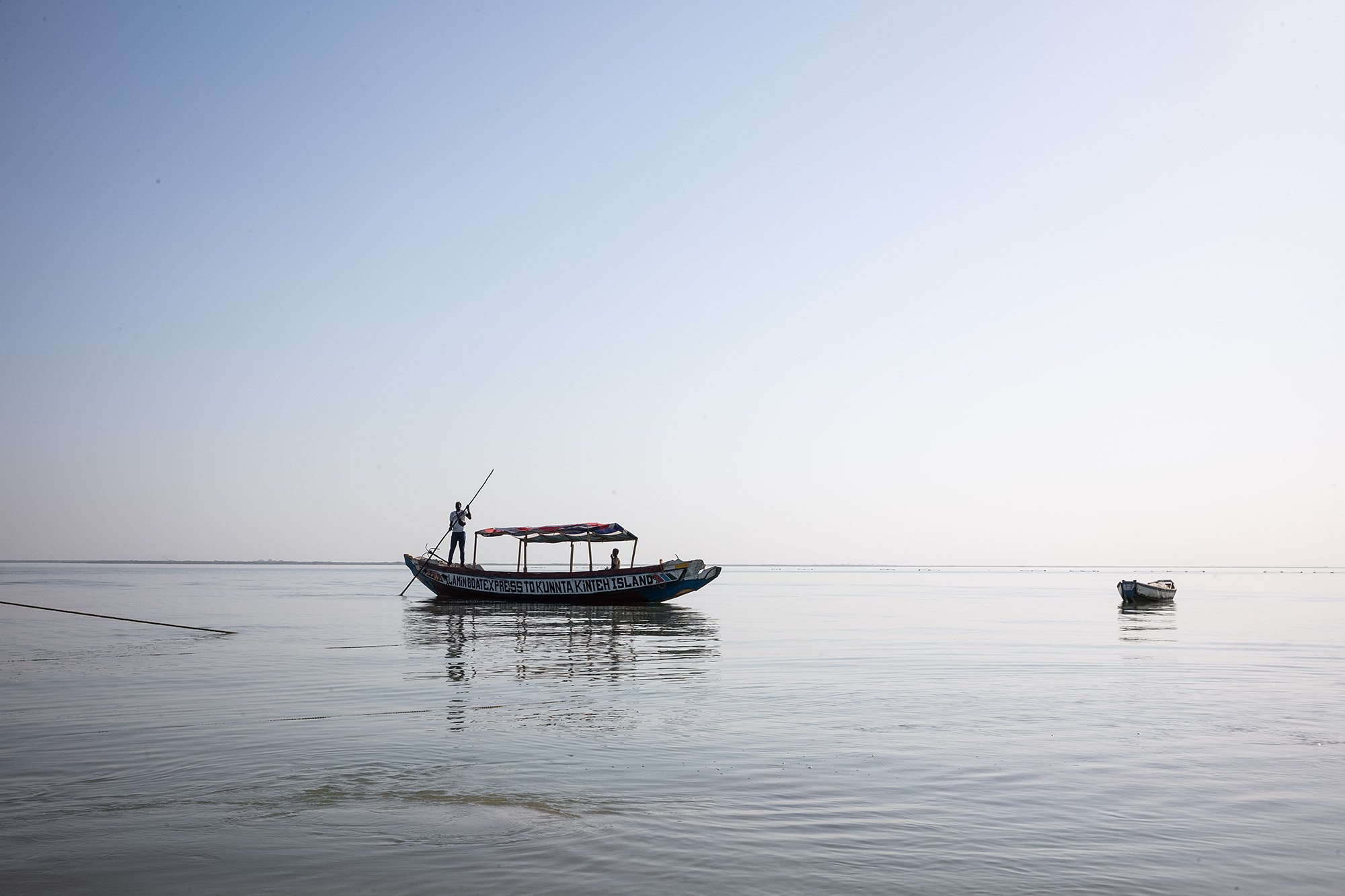
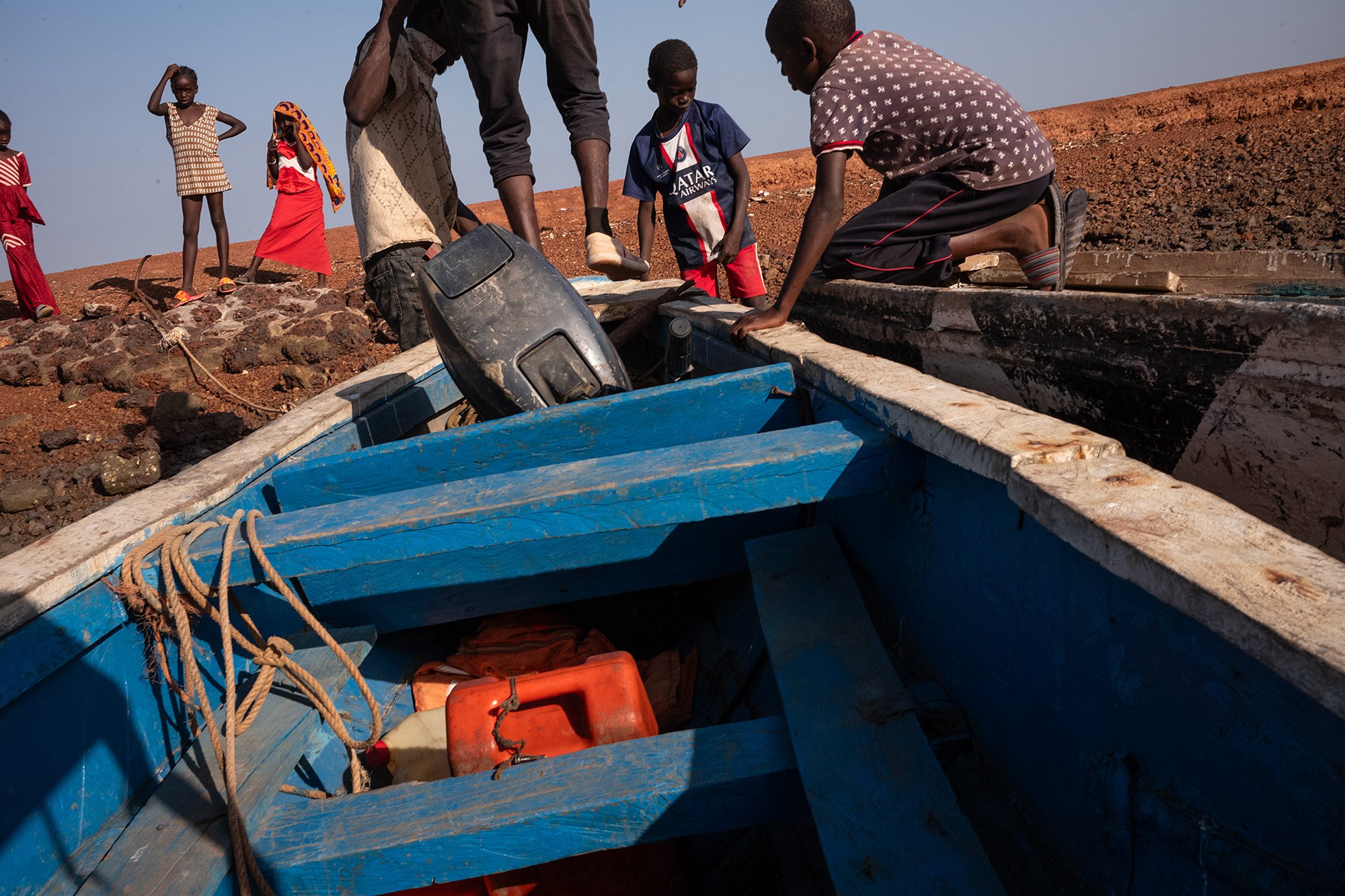


Lunch is delicious. The fish comes in foil with the chips baked in. It’s juicy and flavorful and one of the best meals I’ve had in West Africa. Afterwards, Ibrahima(2) brings me green tea made strong and sweet like it is in Morocco.
We sit for a bit and then they take me to the hotel. After checking in I walk the modest grounds. A number of people are watching Cameroon play Guinea in the Africa Cup of Nations in the dining room, their eyes glued to the screen. The satellite feed is unstable; the picture freezes at odd moments before coming unstuck.
I walk just outside the gates to the banks of the river. It’s low tide and a number of the boats are beached. A group of cows stand by one of the boats, their feet muddy, chewing their cud.





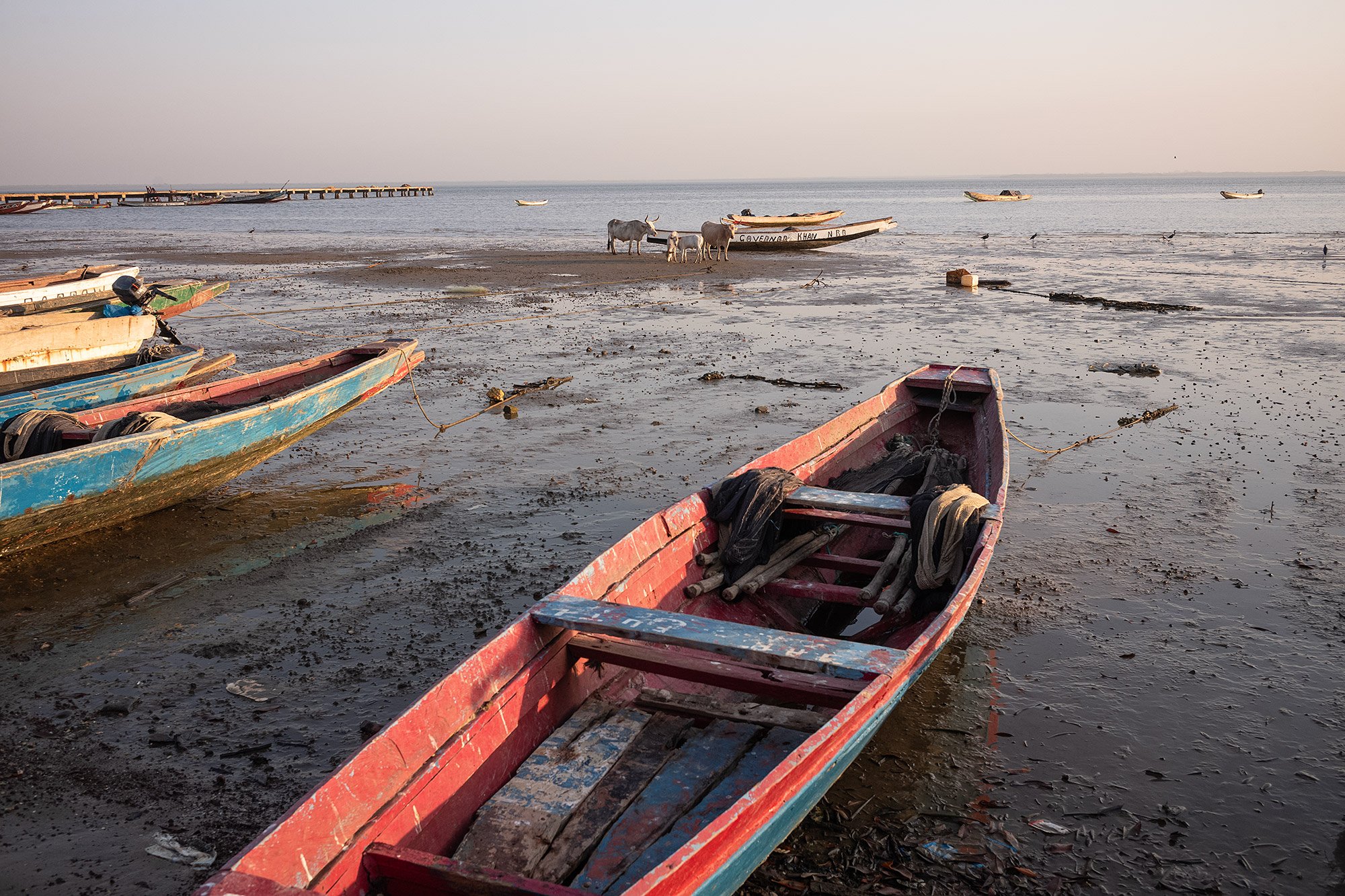
Walking back towards the restaurant a woman asks me if she can have my plastic water bottle. She collects them to give to the villagers who fill them with juice for their children to take to school. She also collects cans. Women in the village turn them into cooking pots.
Back at the hotel restaurant Ibrahima(2) asks me if I want to go on a village walking tour. I tell him I’d rather watch the match. He smiles. He’d rather watch the match, too.

I compliment Ibrahima(1) on this shirt. He tells me it’s for working out. He runs 10km a day, 5km there and 5 back. I ask him if he ran this morning and he says no. He didn’t know the area and tends to run slow if he’s unsure of his surroundings.
After the match I walk back out to the river to watch the sunset. The tide is still low and the light reflects off of the damp muddy bed. It’s quiet and peaceful and I linger out on the riverbed as the skies fill with color and then fade to a solid dark blue.
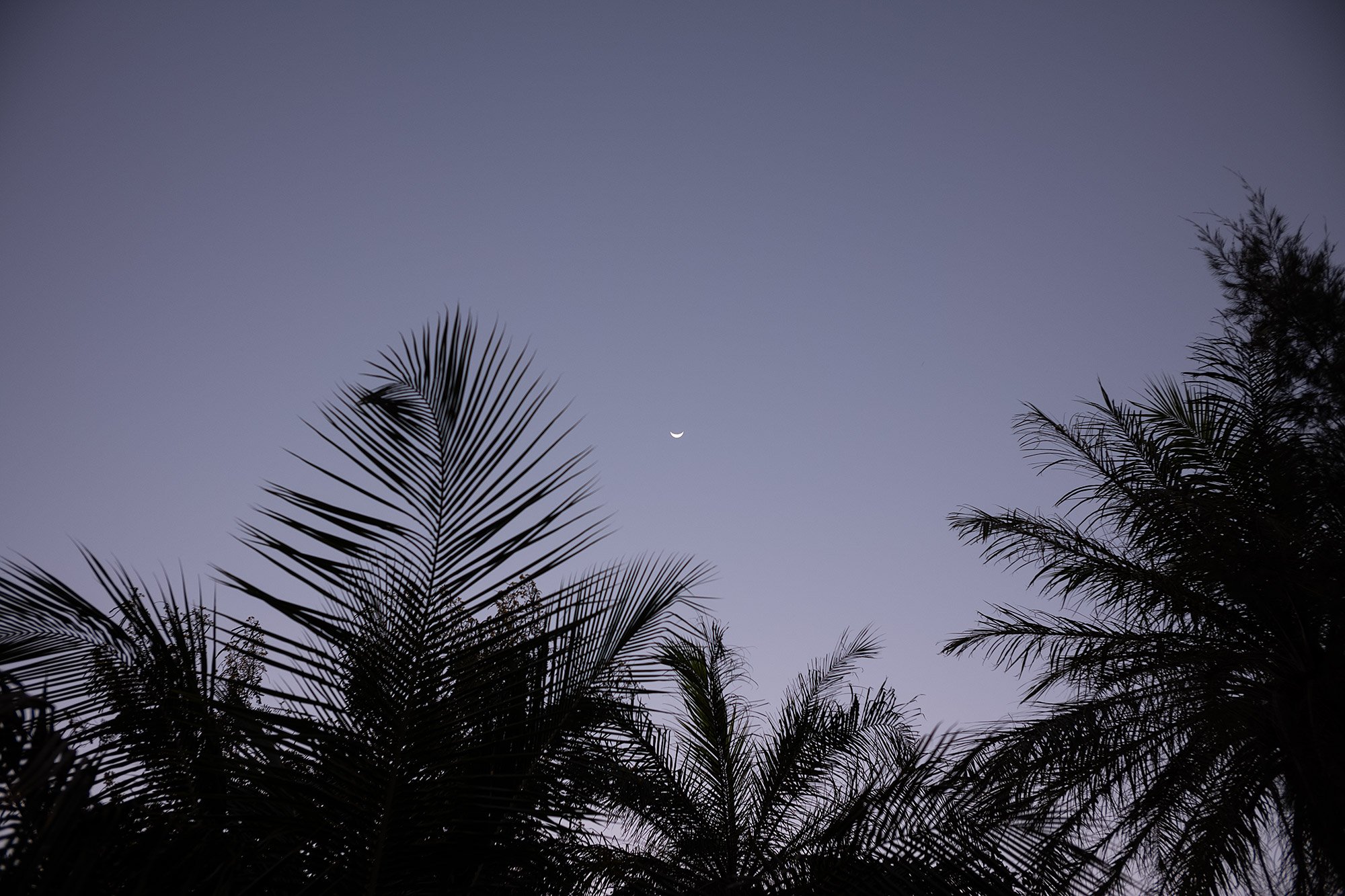



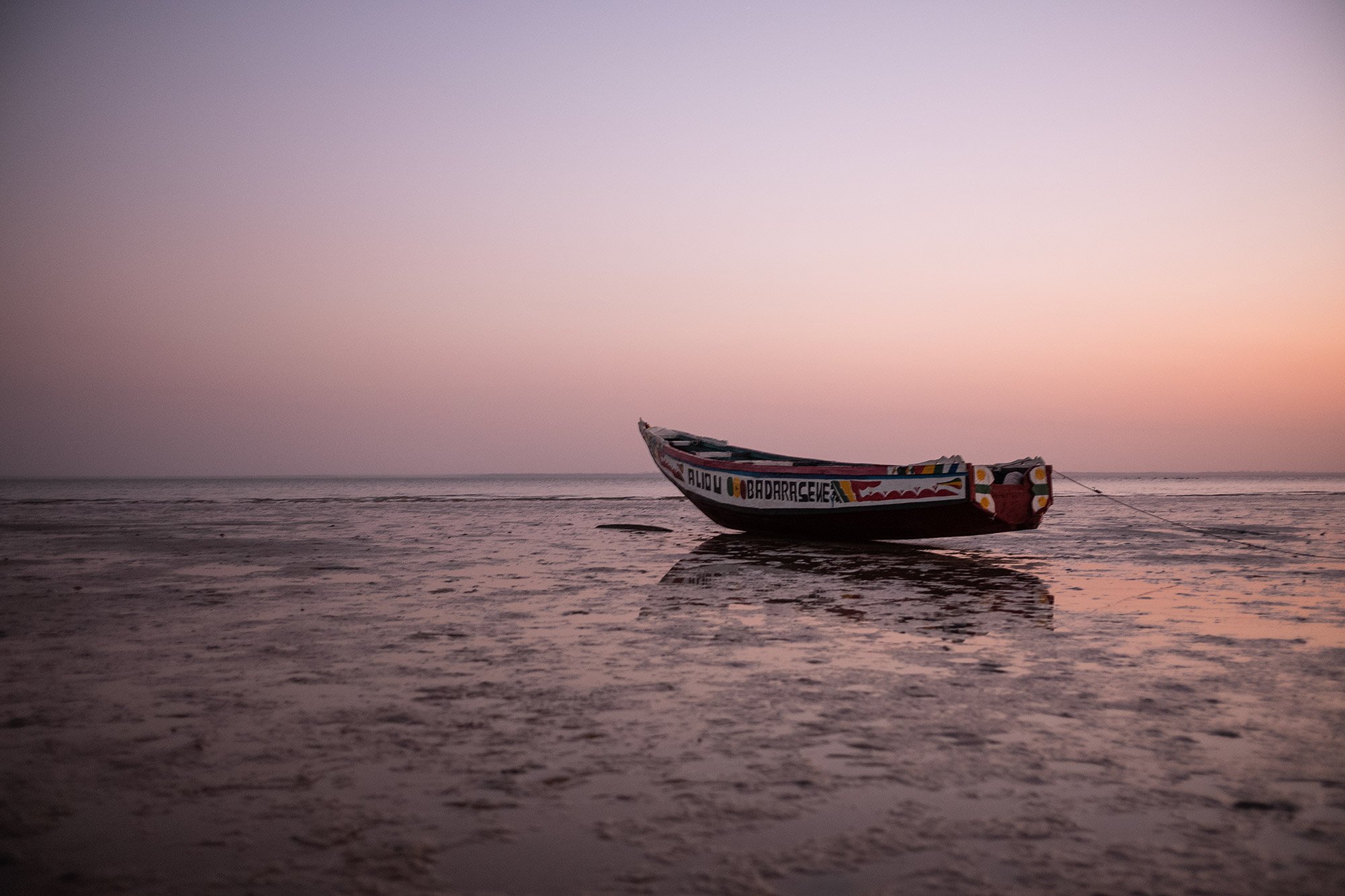

Dinner is delicious. I’ve ordered another fish dish and it’s as good as it was at lunch. Afterwards I watch Angola play Algeria along with the two Ibrahimas. Algeria scores on a beautiful pass finished with an acrobatic bicycle kick. It’s disallowed in what is certain to be a controversial call. The score is evened up on a penalty kick. The second half comes alive, but neither team can get ahead. They play to a draw.
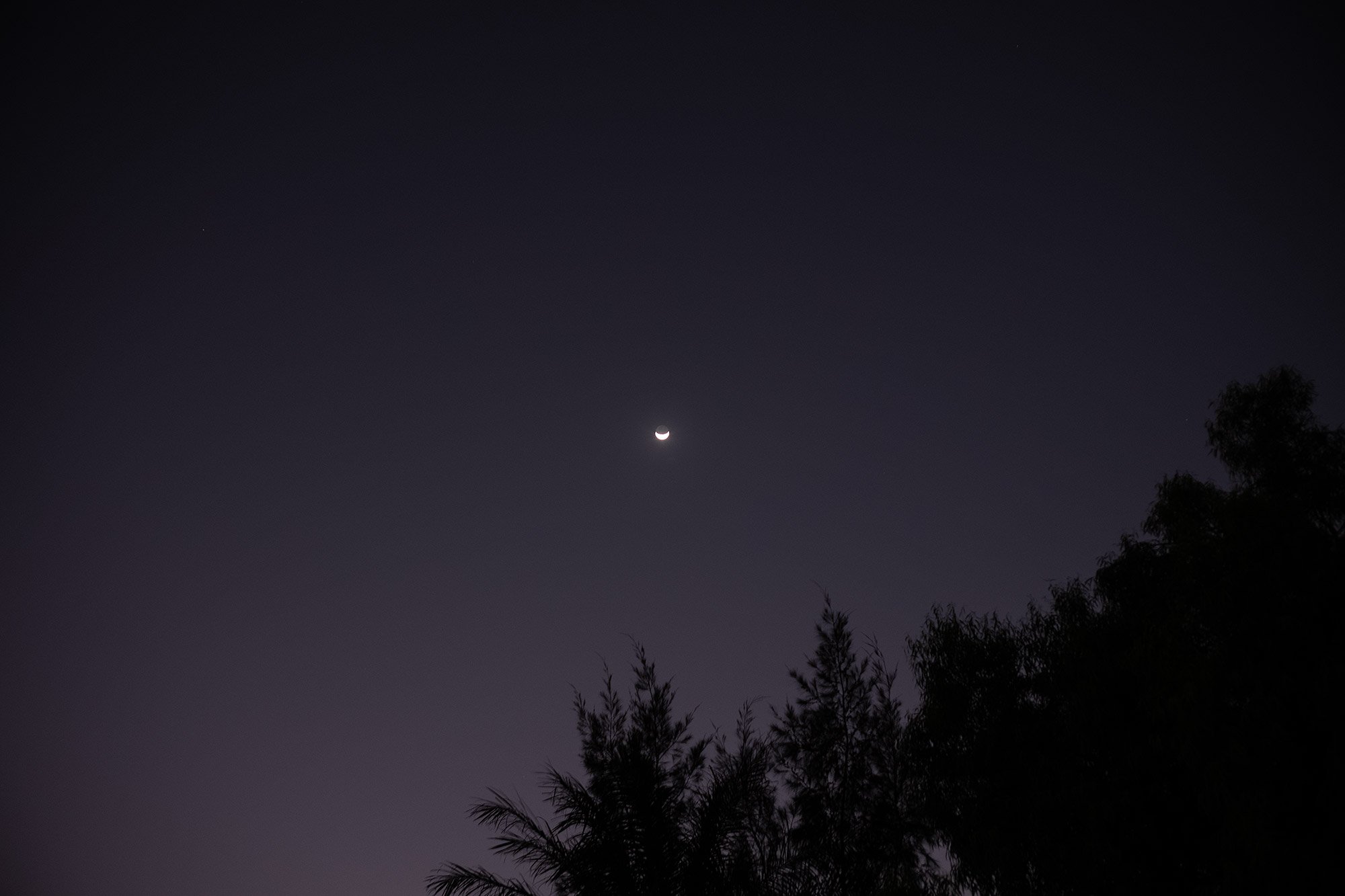
In the morning we’ll be up before the dawn for the drive back to Senegal. I have work in the afternoon and want to make sure I’ll be back before my first meeting. We’ll drive through a morning fog and then retrace our steps back to the border. There, I’ll see Sallah. I’ll ask him how the party was and he’ll tell me he expected to see me. Next year, maybe. We’ll pass the same towns and villages, find ourselves caught up in herds of goats while passing one large town.
We’ll stop to chat with Ibrahima’s uncle to resolve the matter of the accident. He’ll get money for repairs and a new paint job.
We’ll arrive in Dakar with time to spare, and I’ll say goodbye to Ibrahima and then think again. I ask if he’d be able to take me to the airport. He says he will, and I tell him I’m glad I’ll see him again before I leave. When he does come to pick me up, some weeks later, the car will be like new. 🇬🇲


